

25 Education Technology Books Every Leader Should Read

Updated for the 2021 school year.
Everyone has their own reading style. I’ve been blessed with above-average reading speed so I usually have at least 3 books going at one time. In this time of lockdowns and voluntary brumation, that trend has accelerated even more.
Luckily for you, that means I’ve been able to fit in some books about technology in the classroom. This isn’t a traditional “ best books on education ” list though. It’s more holistic than that.
Related articles:
- Awesome Books For The Aspiring Astronomer
- 13 of the Best Minecraft Books for Kids Who Are Reluctant to Read
- Books to Inspire Coding & Robotics
Over the past few years I have read a fair collection of winners, a fair collection of losers and far too many mediocre education technology books. The aim here is to share the ones that have been so highly recommended they are considered must reads. Each of these books has come highly recommended to me over the years. Some are older must-reads, while others have just come out over the past twelve months. And of course, to continue learning from this PLN please do add your own suggestions and must-reads in the comments below.
Education Technology Books For The 2021 School Year
1. out of our minds – 3rd edition, sir ken robinson.

Anyone familiar with Ken Robinson and his amazingly popular TED talk, ‘ Do Schools Kill Creativity ‘ (if you have not seen this just go watch it, I will wait), will understand that this is a must read. The book follows Ken’s belief that creativity is woefully undervalued in modern education. This book deleves into why this has occurred and how we can change it. Once you read this book, you will completely change your mind-set on learning and creativity (in the broadest sense).
Sir Robinson uses the metaphor of locking and unlocking actions a key to describe the power the schools and communities have in the way they use resources to inspire creativity. The book addresses the questions of why creativity is so important in life, at school and work; why people think they lack creativity; and the solution to unlocking the power of creativity in students.
The third edition contains updated case studies, demographics, and have revised the sections on technology and changes to the education system.
2. Teach Like a PIRATE: Using Classroom Technology to Create an Experience and Make Learning Memorable
Matt miller.
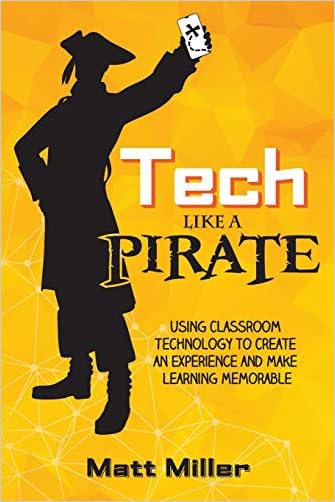
3. Code Breaker: Increase Creativity, Remix Assessment, and Develop a Class of Coder Ninjas!
Brian aspinall.

Using real-life examples and practical lesson ideas, the author shows how to turn syllabus expectations into skills students can use to become problem-solvers and adults who can communicate their ideas.
The book shows teachers how to use computational thinking and code for all grade levels and subjects, irrespective of the teacher’s computer skills. According to the author, all teachers can use coding concepts to shape their pedagogy and instructional practices.
4. Social Media Wellness: Helping Tweens and Teens Thrive in an Unbalanced Digital World
Ana homayoun.

The book provides realistic and practical solutions for parents and educators on how to help students improve productivity and become organized in a digital world. The social media world of teens and tweens are explained for parents and teachers so that they can understand and work with the kids to help them. It helps kids to prioritize and learn to manage distractions.
Safe and healthy socialization with effective self-regulation is possible when students, parents, and teachers follow the guide and work together.
5. The Google Infused Classroom: A Guide to Make Thinking Visible And Amplify Student Voice
Holly clark and tanya avrith.

The guidebook helps teachers use Google Apps and online tools to engage learners and amplify their learning experience. Focusing on 20 essential tools, the book shows teachers how to prepare their students for the future using technology in a meaningful way.
Practical ideas and classroom examples assist teachers in deciding how they want the students to record the process they used and how to demonstrate and share what they’ve learned.
6. New Pillars of Modern Teaching: Solutions For Modern Thinking
Gayle allen.

The author discusses how to revamp traditional pedagogy for the digital world. The book defines, explains and provides examples of the three pillars: design the instructions, curate the curriculum and build feedback loops.
Teachers can help and support students to make and resolve mistakes faster when they understand the student’s roles in a digital classroom.
7. 50 Things You Can Do With Google Classroom
Alice keeler and libbie miller.

A thorough overview of the Google Classroom App shortens the learning curve of implementing new technology. Screenshots and step-by-step instructions demonstrate how to maximize the usage of this free tool.
The book shows teachers how to create lessons, add students, monitor them, reduce cheating, share announcements and assignments, and personalize the learning experience.
8. Ditch That Textbook: Free Your Teaching and Revolutionize Your Classroom

Textbooks students use may already be outdated, especially in the fast-paced world of today. Matt encourages the teacher to remove meaningless, outdated teaching practices and to update standard teaching methods. There’s only so much time in the school day, so why waste any of it on items we know aren’t worthwhile?
Easy to read but very practical; each chapter shows teachers how to modernize their teaching methods. The advice and resources in the book demonstrate to teachers how to implement technology in a way that it will work for the teacher and the students. His website is a must read as well.
9. Born Digital: How Kids Grow Up In a Digital Age: Revised and Expanded Edition
John palfrey and urs gasser.

As leading internet and technology experts, the authors paint a sociological picture of what the world looks like to a generation born in the digital age. The book explores privacy concerns, ethical issues, the psychological effect of information overload, and other problems.
It also addresses the concern of how digital technology facilitates and influences the younger generation’s interactions, communication, friendships, and activities.
10. Personal Learning Networks: Using the Power of Connections to Transform Education
Will richardson & rob mancabelli.
As a big fan of Will Richardson, I was delighted when this book was recommended to me by a colleague. The book studies the most powerful tool in an EdTech leader’s arsenal, the PLN. Dissecting and advising on the benefits and learning opportunities that can be achieved through networking, this is a great read for anyone building or just starting to grow their PLN.
11. Learning First Technology Second

Technology enhances good teaching strategies. The book puts the use of technology in the classroom in perspective. Triple E Framework is introduced to enhance learning experience beyond the traditional means and help teachers engage with their students in time-on-task learning.
The lesson planning template and case studies on how to integrate technology give teachers practical guidelines on how to use technology in their classroom.
12. Illuminate: Technology Enhanced Learning
Bethany petty.

Ten easy to understand chapters takes the reader through a journey on how to implement technology in the classroom in a meaningful way. Many of the ideas teachers can implement immediately.
Included are tips on how to use QR codes and apps to improve communication with parents, strategies to motivate students to share their learning experiences, and practical ideas how to improve critical thinking and creativity in students.
13. Fact Vs Fiction: Teaching Critical Thinking Skills in the Age of Fake News
Jennifer lagarde and darren hudgings.

The book thoroughly covers the topic of fake news; its background, the types of fake news, and how to know when it’s fake news. Then it shows readers how to avoid and not be sucked in by fake news spread at school or on social media platforms.
Multiple resources are listed to help teachers show students how to recognize fact from fiction and not to spread false stories.
14. Shake Up Learning: Practical Ideas to Move Learning from Static to Dynamic

The three-part book discusses why it’s time to shake up learning using technology; what classroom changes support dynamic learning experiences; and how to plan meaningful lessons.
The purpose of the book is to help teachers for all grade levels to use technology to maximize the learning experience. The book is a guide and planning tool with implementation strategies, templates, tips on how to use lesson plans, and to move to learn beyond the school year.
15. Who You Know: Unlocking Innovations That Expand Students’ Networks
Julia freeland fisher.

A fresh look at how teachers and administrators can break inequality in the school by building relationships and improve social mobility for students. The latest technology, data, and real-life experiences provide evidence-based guidance on how educators can help.
With modern technology, geography and circumstances no longer limit building and nurturing social relationships. The book explains how to create next-generation learning and connecting hubs.
As an aside, if you want to see what the patron saint of the dot-com bubble is doing these days, he wrote the foreword. (Actually, I kid with the snide remark; he’s a really bright man, so his words do add to the book.)
16. Disrupting Class: How Disruptive Innovation Will Change The Way the World Will Learn Expanded Edition
Clayton m christensen, michael b. horn, and curtis w. johnson.

See, I kid – I have book recomendation that is authored by Clay. Personally I have found his work somewhat leaning towards the theoretical vs practical, with an aftertaste of guru, but a trusted collegue insisted I put this book in the roundup. If there’s one thing I am aware of, my tastes are not that of the mainstream. Hopefully tat is the case with this book as well.
Outside-the-box strategies, success stories, and fresh ideas may challenge teachers to rethink and re-evaluate student programs and how they understand intelligence. The book may inspire implementing new ideas and strategies.
The book will show how to meet the technology demand, the positive effects of customized learning, how to use disruptive interventions, and equip students for the global market. Or not, maybe (sorry, I can’t help myself.)
17. Screen Schooled: Two Veteran Teachers Expose How Technology Overuse is Making Our Kids Dumber
Joe clement and matt miles.

According to the authors, screen saturation may lead to cognitive and social deficits in students. They expose how powerless teachers are to restrict cellphone distractions; unfocused and zoned-out kids; and administrators maneuvered by questionable science sponsored by corporate purveyors.
The authors make a compelling case for more effective learning. Action steps show parents how they can demand change and save their kids from screen addiction.
18. Integrating Technology in the Classroom: Tools to Meet the Needs of Every Student 2 nd Edition
Boni hamilton.

Discover technology tools and activities that you as a teacher may feel comfortable with. The variety ensures that there will be tools that resonate with the teacher’s technology skills; that complement the teaching style; and are applicable in the classroom context.
The Second Edition has a new chapter on how to leverage technology for adaptive needs with practical examples of how teachers have implemented it. The book is filled with new ideas and tools and projects the teacher can use immediately.
19. A New Culture of Learning: Cultivating the Imagination for a World of Constant Change
Douglas thomas & john seely brown.
With so much change occurring in the education space it is often difficult to keep up, stay enthused and most importantly, embrace and grow through change. Not just a critique on current educational practices, ‘A New Culture of Learning’ discusses how schools can embrace a new model of learning and how technology can help foster teaching and change.
20. Rethinking Education in the Age of Technology: The Digital Revolution and Schooling in America
Allan collins & richard halverson.
Re-enforcing many concepts that education technology mavens see as beneficial to 21st century learning, ‘Rethinking Education in the Age of Technology’ builds an EdTech future that in truth should not be at all far off. With technology creeping into every device, career path and facet of modern living, the book takes a clear steer at how this should impact learning.
21. Here Comes Everybody: The Power of Organizing Without Organizations
Clay shirky.
One of my all time favorite thinkers, Clay Shirky writes about the huge role technology has played in shaping group organization. Not specifically an education technology book, it really is a must for anyone interested in understanding just how powerful technology can be. I guarantee after reading this your mind will be buzzing with amazing classroom ideas and innovations.
I guarantee after reading this your mind will be buzzing with amazing classroom ideas and innovations Tweet //
22. Curriculum 21: Essential Education for a Changing World
Heidi hayes jacobs.
Broken down into seven key areas from content and assessment to habits of the mind, ‘Curriculum 21’ lays out a path for transforming schools into what they must become. With the collective wisdom of ten education thought leaders, renowned author and speaker Heidi Hayes Jacobs shares an idealistic view of where education needs to head.
23. 21st Century Skills: Rethinking How Students Learn
James bellanca & ron brandt.
Another recommendation to me, this book is part of the very popular Leading Edge series. ’21st Century Skills’ unites education authorities from around the globe and asks them to confront the important issues that profoundly impact student success. The book looks at which skills are most important to students and what can be done to help schools include these skills in their repertoire so that twenty-first century learning results.
24. Drive: The Surprising Truth About What Motivates Us
Daniel h. pink.
Another book I read after watching an inspiring YouTube video (once again, you gotta watch this), ‘Drive’ is a brilliant book for both personal and professional growth. Understanding exactly what motivates people to succeed will change the way you motivate yourself, your staff and most importantly, your students. It’s amazing how a few simple concepts backed by fascinating research can have such a huge mental impact.
25. Google Apps For Littles: Believe They Can
Christine pinto and alice keeler.

Last but not least we have Google Apps for Littles. The authors show practical ways of how to integrate digital tools in pre-K and elementary school classrooms. The children may already be familiar with smartphones and tablets. By showing them how to use digital tools to learn, teachers may equip them for future education and help to satisfy their curiosity.
The book contains exercise to stimulate critical thinking and collaboration, activities to integrate Google Apps, and ideas on how to use G Suite for educators.
What education technology books have you loved? Drop a comment below and help add to the list!
Feature image courtesy of Flickr, CarbonNYC .
Bryan Bigari is the current editor of Fractus Learning. As a father of three, Bryan has a passion for helping kids to both excel in school and have fun with friends and parents. He has worked on education issues at the state and federal level, and is looking forward to sharing his first hand education and toy knowledge with you.
13 Comments
Great list! I have read #1, 2, 6 and 8 myself. I also like your “two books on the go” reading rule. An idea worth a future post.
If I may be so bold, I would add Who Owns The Learning? by Alan November and The Connected Educator by Sheryl Nussbaum-Beach and Lani Ritter Hall to that list.
Thanks for the comment Matt! Great additions to the list. I’ve added both of them to my wishlist. If you liked #1 and #8 then I guarantee you will love #5. Nick
“Everyone has their own reading style. My long held reading rule is to have two books on the go. One trashy thriller to tune out the world with, and one “mind nourishing” non-fiction to make sure I am not letting life float by (it’s also a bit less embarrassing to pull out on the train). ” I thought it was just me. I actually “buy myself off” – if I allow myself to read one escape-ism, I will be diligent about the mind-nourishing book. (High-energy physics/cosmology)
Haha! I am so glad I’m not the only one playing mind games with myself :) It’s like eating a well balanced diet. You can have dessert once you’ve finished your vegetables. Thanks for the great comment Nedley!
I really enjoyed reading this blog. I am learning all kinda of new ways to incorporate technology in the classroom. I have never read any of these books, but after hearing your input on each of the books, I am excited to begin reading one. The book “A New Culture of Learning: Cultivating the Imagination for a World of Constant Change really interest me. It is important to keep up, stay enthused, and grow through change. I cannot wait to share these books with my class! I am an elementary education major at the University of South Alabama in Mobile, Alabama. I am in Dr. Strange’s EDM310 class. You can follow our class blog http://edm310.blogspot.com/ . You can follow my blog at http://maconlaurenedm310.blogspot.com/ . Thank you for sharing these books!
A pleasure Lauren! All the best with your major and thanks for the links!
I would also recommend One Room Schoolhouse- Education Reimagined by Sal Khan, his vision is the future of education. Also, Reality Is Broken: Why Games Make Us Better and How They Can Change the World by Jane McGonigal, not strictly about education but does have some good ideas about using point to encourage teamwork, motivation, and effort.
Thanks for the tips Susan… Added them to my wishlist :) Nick
Download these 50 masterfully designed business book summaries that will Skyrocket your business and Change your Destiny forever. Goto http://www.TheBillionairesBrain.com Chk out http://www.TheBillionairesBrain.com
I’ve read n.1 and n. 6. I have many more to add as well…(enjoy a selection below):
I’m a little late with my response, but your intro made me laugh — I also have one non-fiction book and one “fluffy” fiction book on my nightstand. I love Drive and Ken Robinson, so I would recommend Robinson’s latest book, Creative Schools, which touts personalized learning. And, for the ultimate in personal learning, I would recommend anything by Dr. Maria Montessori. It may seem outdated since she was an observant educator/physician over 100 years ago, but her observations are the same ones everyone else is now “discovering!” If it seems overwhelming, start with Paula Polk Lillard’s “Montessori: A Modern Approach.” Technology doesn’t always have to mean computers and electronics…
Hi Liz, glad it made you smile :) Guilty pleasures Great thoughts and the latest Ken Robinson is a must. Love the Dr. Maria Montessori tip too. It’s amazing how timeless some of the books are!
nice blog thanks for sharing….
Leave a Reply Cancel reply
Your email address will not be published. Required fields are marked *
This site uses Akismet to reduce spam. Learn how your comment data is processed .

Foundations of Educational Technology
Penny Thompson, Oklahoma State University
Copyright Year: 2017
Publisher: Oklahoma State University
Language: English
Formats Available
Conditions of use.
Learn more about reviews.
Reviewed by Erin Weldon, Instructional Design Specialist, Trine University on 11/22/22
This textbook maps out the foundations of educational technology into specific categories. Readers develop an understanding of the overall topic through the historical aspects of the idea of educational technology, followed by developmental... read more
Comprehensiveness rating: 5 see less
This textbook maps out the foundations of educational technology into specific categories. Readers develop an understanding of the overall topic through the historical aspects of the idea of educational technology, followed by developmental theories, learning theories, motivation to increase engagement, adult and workplace learning, how communication impacts instructional design, thorough research and different views of educational technology, a chapter that covers the most critical aspects of instructional design, integrating technology and the selection process, acceptance and diffusion of technology, and ending with a chapter on professional ethics. The textbook provides instructional design opportunities in many different disciplines in addition to education. The textbook provides a table of contents; however, there is no index glossary. It might be beneficial to include a glossary of the terms used throughout the book that relate to educational technology. As an introduction to the topic, readers might find it helpful to understand the meaning of terms.
Content Accuracy rating: 3
Content is accurate and up-to-date on theories regarding Educational Technology. This textbook appears to be unbiased as it offers research on different perspectives and theories; however, I noticed in the Chapter 11.2: Conflicts of Interest, the last paragraph could come across as biased information as there could be opinionated information written.
Relevance/Longevity rating: 4
There are some videos throughout the textbook that represent relevant information; however, some a from more than five years ago. To avoid obsolete information, you might consider choosing content that has been created within the last five years. As many know, technology can change very quickly!
Clarity rating: 3
The text is clear and accessible to read most of the time. The URL links do not appear accessible. It might be helpful to include descriptive hyperlinks for each of the YouTube videos embedded into the book. Technology jargon is used occasionally throughout the text. It might be beneficial to include the definition of the terms at the end of the pages or a include a glossary at the end.
Consistency rating: 5
All terminology and the framework is consistent and relevant to Educational Technology.
Modularity rating: 4
The text is organized very well into specific categories and does not overwhelm the reader. I do find the videos a little distracting. It might be helpful to include the videos as a descriptive hyperlink rather than appear on the page.
Organization/Structure/Flow rating: 5
Each chapter demonstrates a great understanding of the topic and the chapters lead into one another. The book flows in a way that readers will not be confused or feel as if something is missing before reading another chapter.
Interface rating: 4
Overall, the textbook was simple to navigate; however, it might be useful to include page navigation at the bottom left and right corners. Readers can move from page to page without having to go back to the table of contents. Including the next topic with the navigational buttons would also increase ease of navigation.
Grammatical Errors rating: 5
I did not find any grammatical errors.
Cultural Relevance rating: 5
The text is not culturally insensitive or offensive. I found the research to be very thorough and the text includes a variety of perspectives.
Overall, this textbook is a great introduction to Educational Technology and discusses the key points leaders will need to know about the discipline.
Table of Contents
Introduction to Educational Technology
Human Development
Learning Theory
Adult & Workspace Learning
Communication
Research in Educational Technology
Instructional Design
Technology Selection and Integration
Acceptance and Diffusion of Technology
Professional Ethics
Ancillary Material
About the book.
This text provides a a graduate level introduction to the field of educational technology.
About the Contributors
I am an associate professor in the Educational Technology program at Oklahoma State University .
My research interests center on areas where technology and human cognition intersect. I’m particularly interested in how immersion in digital technology may or may not be changing habits of mind and attitudes toward learning. My research also extends to how people learn from each other in technology-mediated environments, including both formal learning management systems and informal social networking and content sharing sites.
Before beginning my academic career I was an e-learning developer and an accounting systems developer.
Contribute to this Page
- Skip to primary navigation
- Skip to main content
- Skip to primary sidebar
- Skip to footer
Don't Miss a Post! Subscribe

- Book Summaries
- Books for Teachers
- Research Methodology Books
- Themed Book Lists
- Beyond Books

Selected Reads
A blog for bibliophiles covering everything related to books from reviews and summaries to quotes and open articles.
Best EdTech Books for Teachers and Educators
By Med Kharbach, PhD | Published: December 19, 2023 | Updated: April 9, 2024
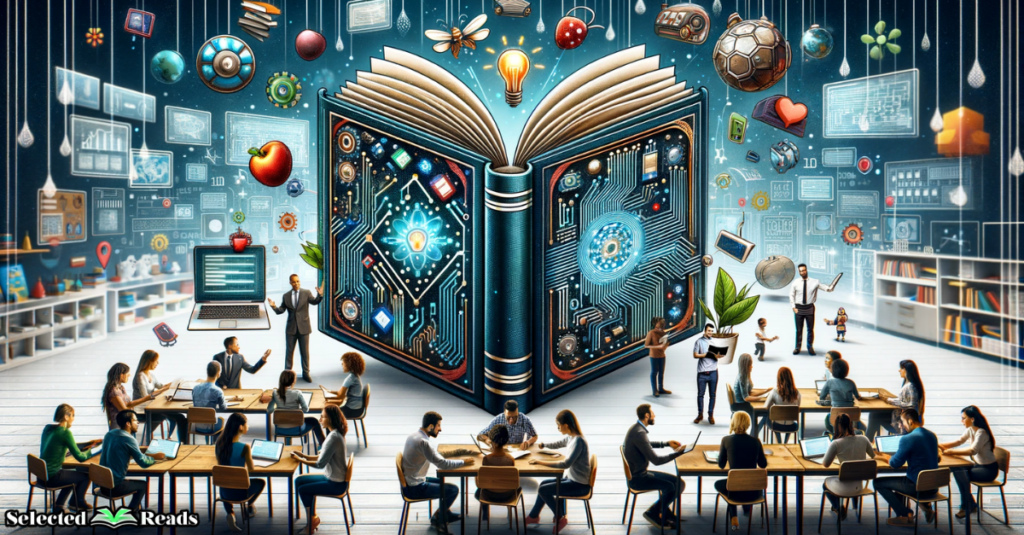
With the rapid growth of digital tools and resources, it’s essential for educators to stay informed and adept at integrating technology into their teaching practices. This is where the right selection of books can make a significant difference. In this blog post, we delve into a curated list of must-read books for educators who are passionate about harnessing the power of technology in their classrooms.
These books offer a wealth of knowledge and insights. They cover a broad spectrum of topics, from integrating technology in diverse learning environments to leveraging digital tools for deeper learning and student engagement. Whether you are a tech-savvy educator looking for advanced strategies or a newcomer to the world of edtech seeking foundational knowledge, these books provide valuable guidance.
EdTech Books
Here are our top picks for best EdTech books:
1. Edtech for the K-12 Classroom , by ISTE
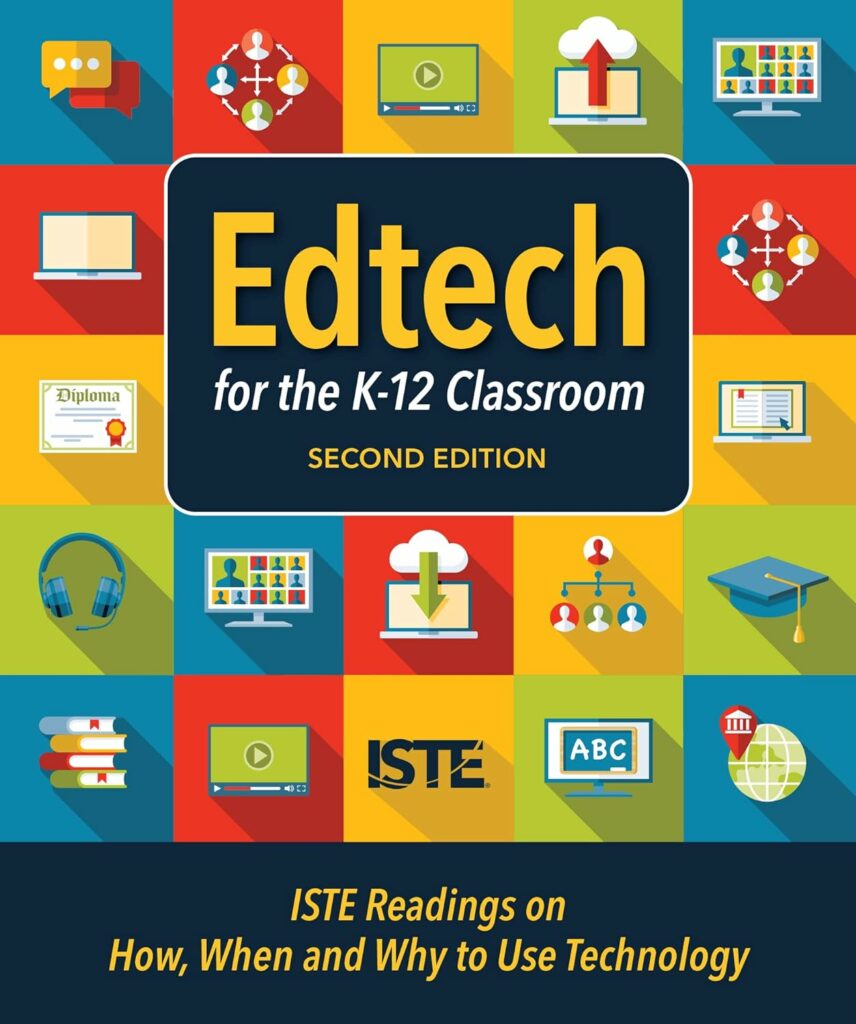
In “Edtech for the K-12 Classroom, Second Edition,” ISTE provides an insightful guide for educators to harness technology in the classroom effectively. This edition is rich with real-life stories from educators who demonstrate how to implement edtech in ways that align with the ISTE Standards. The book offers a comprehensive view, covering everything from research-based teaching methods with technology to the integration of emerging technologies like virtual reality and AI. It’s an essential resource for educators seeking to create more innovative and problem-solving learning experiences, ensuring equity and inclusion in technology use.
2. EdTech Essentials: The Top 10 Technology Strategies for All Learning Environments , by Monica Burns
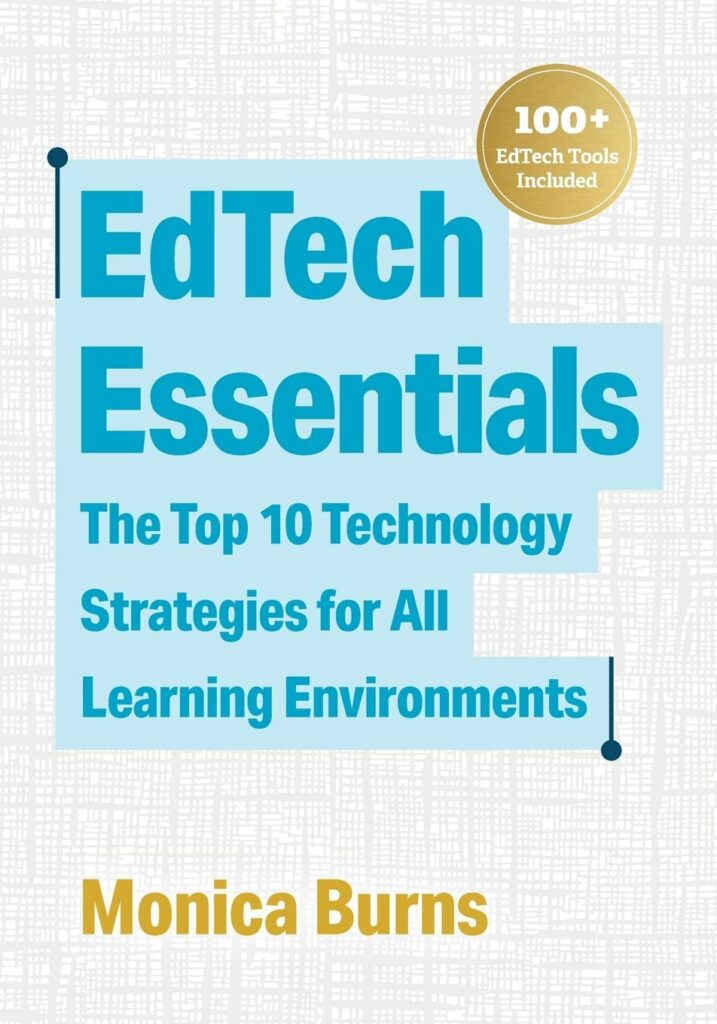
Monica Burns’ “EdTech Essentials” is a practical, reader-friendly guide that demystifies the vast world of educational technology. Burns, an experienced EdTech consultant, focuses on the top ten essential strategies for effectively using technology across various learning environments. She addresses the challenges educators face in digital spaces, both in distance learning and traditional settings, providing clear guidance on navigating through an overwhelming array of digital tools and offering insights on fostering best practices in online classroom learning.
3. Integrating Technology in the Classroom: Tools to Meet the Needs of Every Student , by Boni Hamilton
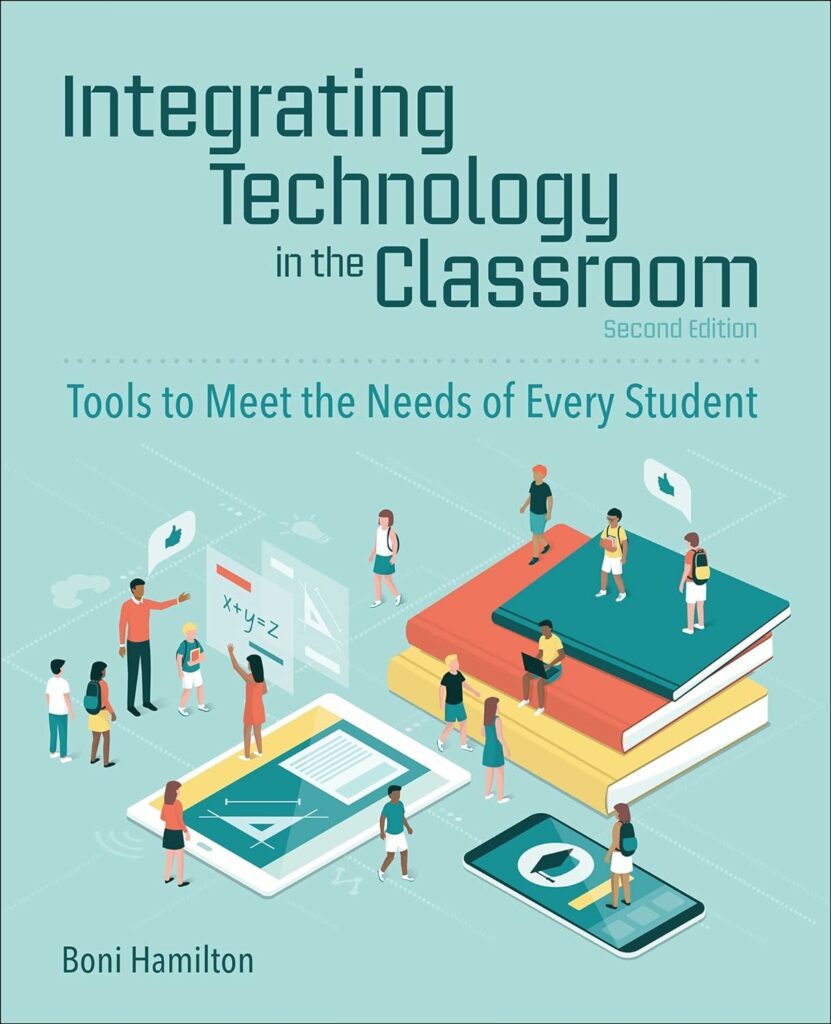
Boni Hamilton’s “Integrating Technology in the Classroom” offers a unique perspective on the use of technology in education. Recognizing that every teacher has distinct skills and experiences, Hamilton presents an array of technology tools and projects tailored to different teaching styles and contexts. This book is particularly valuable for educators looking to enhance their technology skills and adapt them to their teaching style, all while focusing on achieving substantial academic growth in their students.
4. The Interactive Class , by Joe Merrill, Kristin Merrill
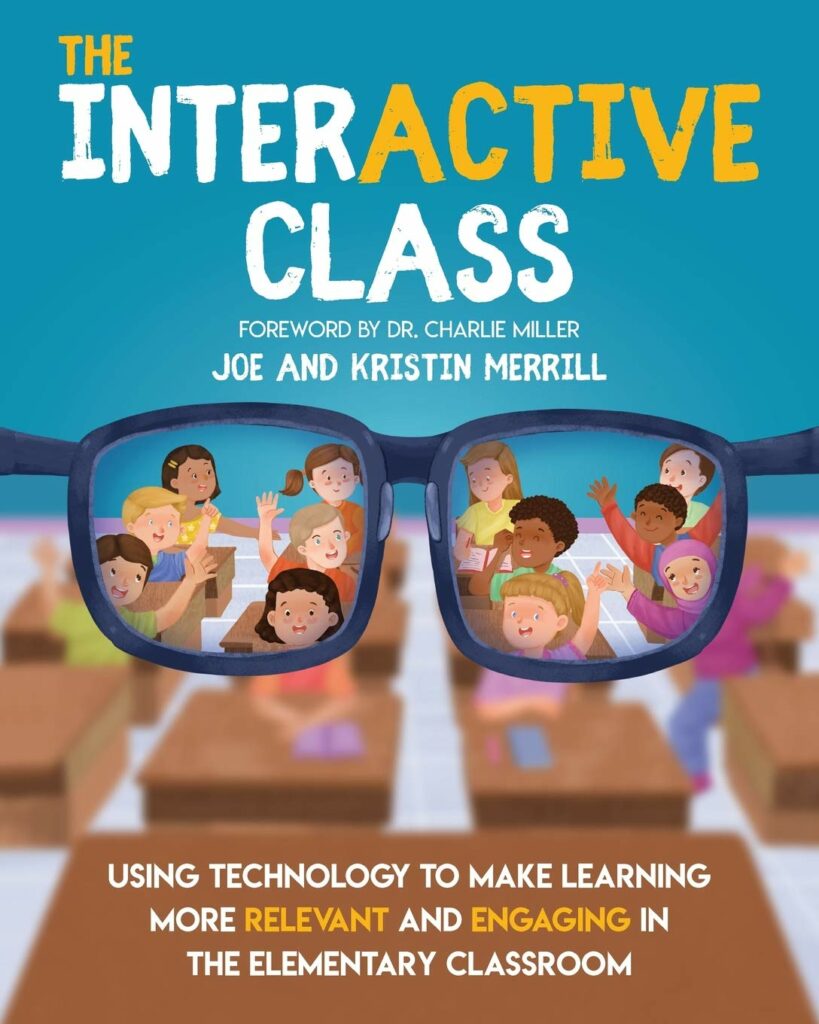
“The Interactive Class” by Joe and Kristin Merrill is a treasure trove of ideas for elementary educators seeking to revitalize their teaching methods. This book offers a practical framework for integrating technology into the classroom, making learning more engaging and relevant. The Merrills, both experienced classroom teachers, share a wealth of implementable lessons and strategies, addressing common challenges in technology integration and content standards. This book is an excellent resource for teachers aiming to create a more dynamic and interactive learning environment.
Related: Race after Technology Summary and Discussion Questions
5. Educational Duct Tape , by Jake Miller
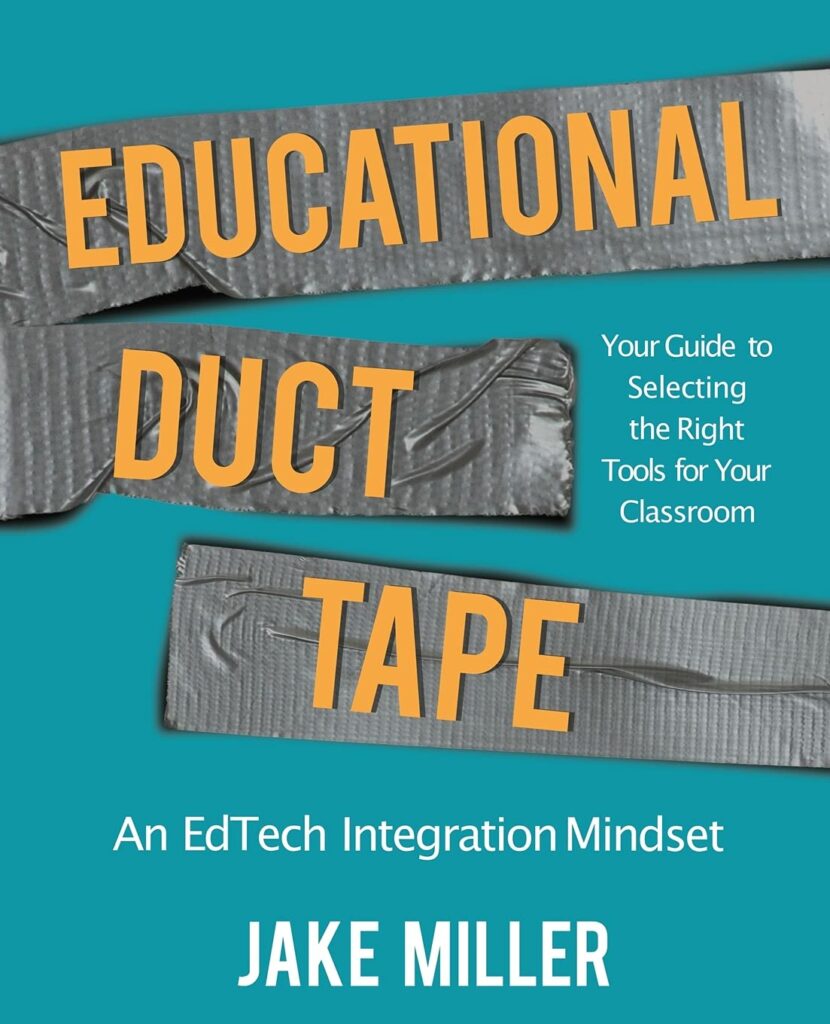
Jake Miller’s “Educational Duct Tape” introduces an innovative mindset for integrating educational technology. Miller likens edtech to duct tape, a versatile tool that can be used creatively to solve a variety of problems in the educational setting. The book offers practical advice and strategies for teachers to seamlessly integrate technology into their teaching, enhancing the learning experience. It’s particularly useful for educators looking to adopt a more adaptable and creative approach to using technology in their classrooms.
6. Rewiring Education: How Technology Can Unlock Every Student’s Potential , by John D. Couch
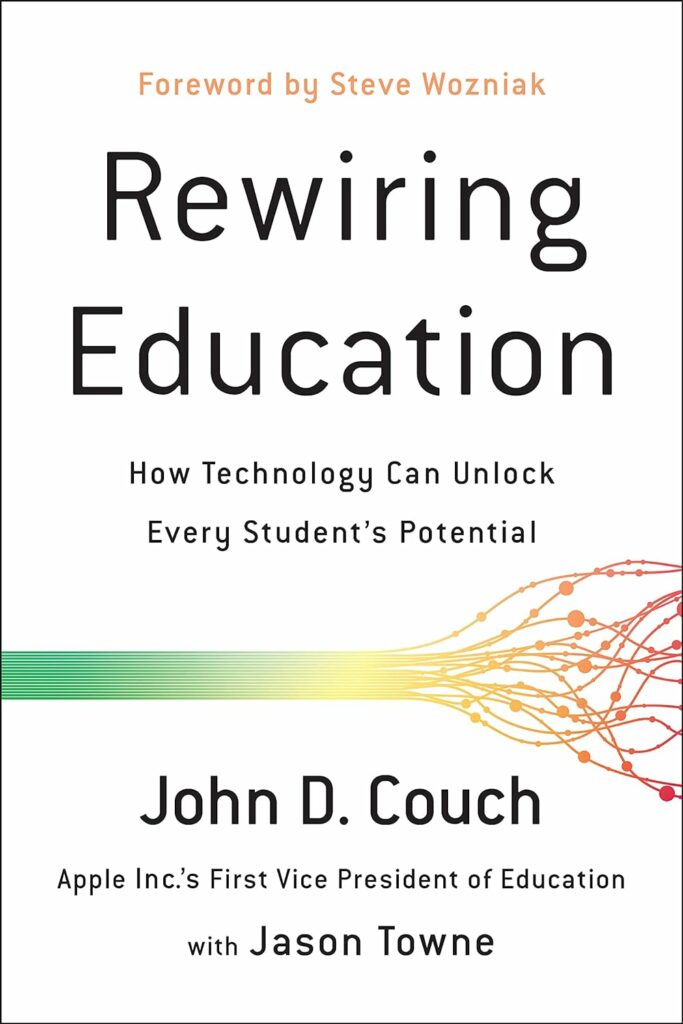
“Rewiring Education” by John D. Couch, with a foreword by Steve Wozniak, delves into the transformative potential of technology in education. Couch, drawing from his extensive experience in both education and technology at Apple, discusses how technology can revolutionize learning and teaching. The book showcases insights from the Apple Classrooms of Tomorrow research and its successor, ACOT 2, highlighting the impact of Challenge-Based Learning. Couch provides a visionary outlook on education, emphasizing the need for educational methods and technologies that cater to all students, including those facing academic challenges and high achievers.
7. U DL and Blended Learning: Thriving in Flexible Learning Landscapes , by Katie Novak, Catlin Tucker
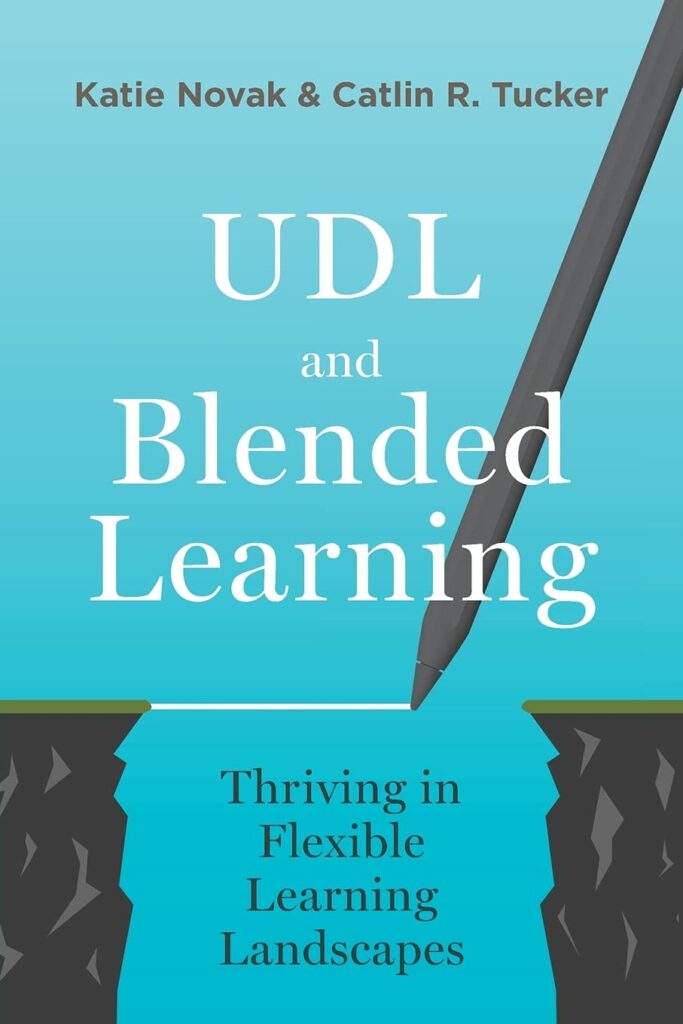
In “UDL and Blended Learning” by Katie Novak and Catlin Tucker, the authors merge the principles of Universal Design for Learning with blended learning techniques. This guide offers educators practical strategies to create inclusive, adaptable, and engaging learning experiences for students in various environments. Emphasizing community building, equity, and accessibility, the book is a timely resource for navigating today’s shifting educational landscapes, ensuring that learning is relevant, authentic, and accessible to all students, regardless of the challenges.
8. The Chromebook Infused Classroom: Using Blended Learning to Create Engaging , Student-Centered Classrooms, by Holly Clark
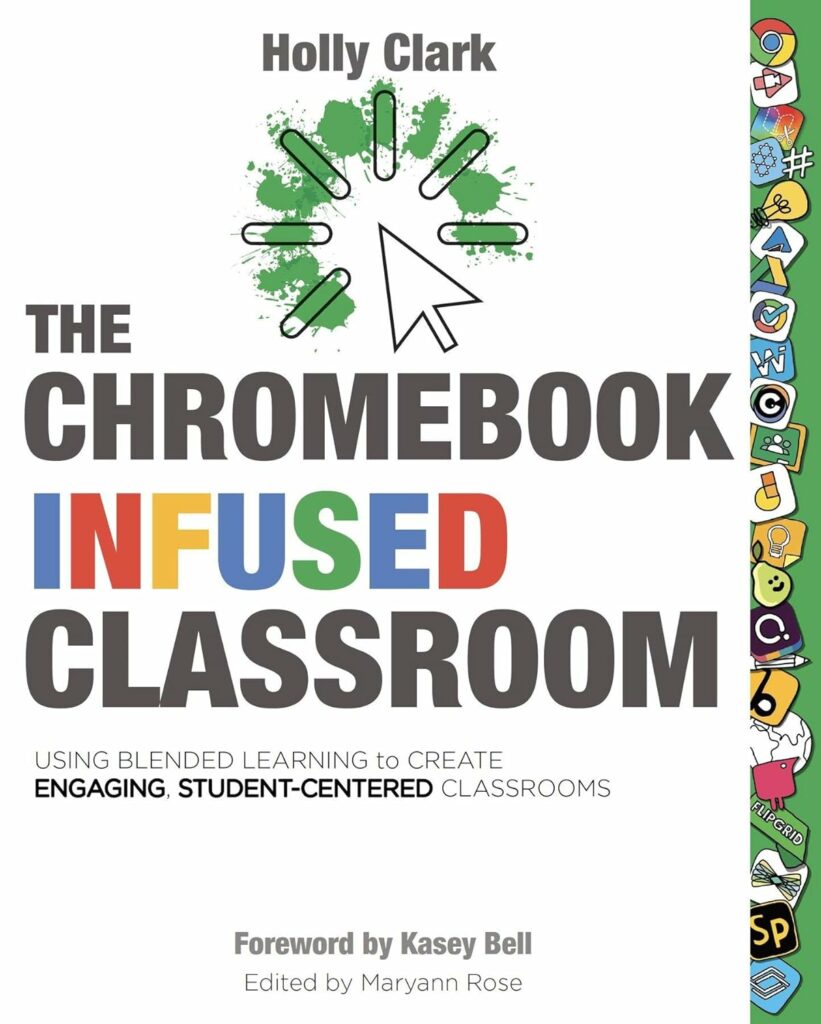
Holly Clark’s “The Chromebook Infused Classroom” is a comprehensive guide for educators looking to effectively integrate Chromebooks into their teaching. The book focuses on blended learning strategies to create engaging and student-centered classrooms. It provides practical tips and insights for teachers at all stages of Chromebook adoption, from beginners to those looking to enhance their existing practices. Clark’s approach is centered on making technology a meaningful and effective component of the learning experience.
9. Teachers vs Tech?: The case for an ed tech revolution , by Daisy Christodoulou
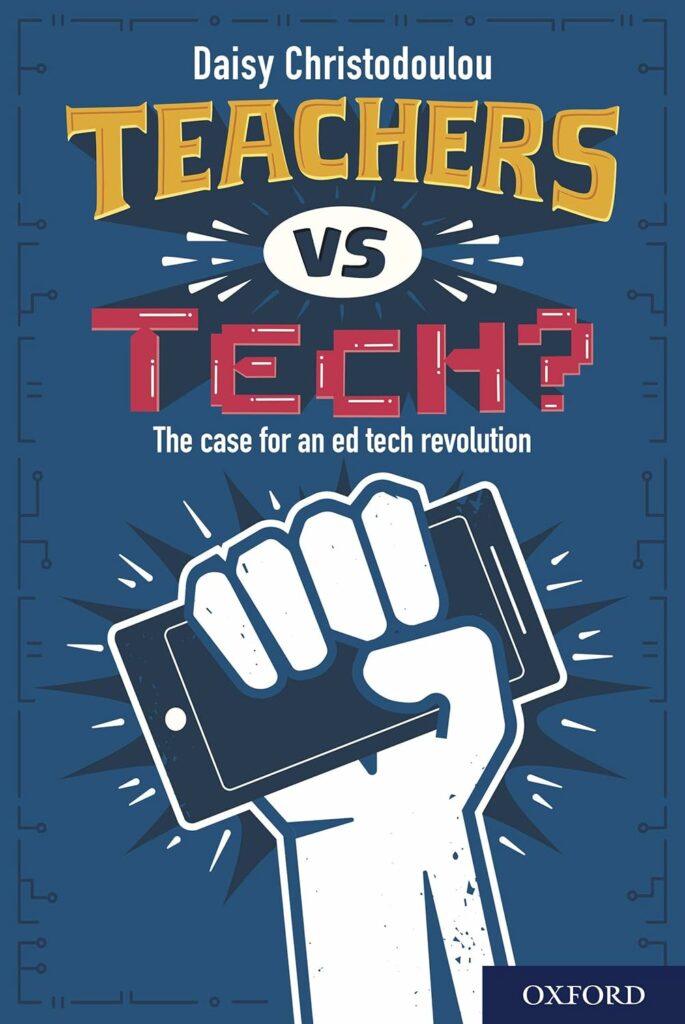
“Teachers vs Tech?” by Daisy Christodoulou critically examines the role of technology in education. Christodoulou, leveraging her experience in the classroom and the education sector, explores the successes and shortcomings of educational technology. She addresses a range of topics from learning science and assessment to personalization and the importance of factual knowledge. The book offers a balanced view of the ed tech debate, presenting an informed vision for how technology and teaching expertise can synergistically improve educational outcomes.
10. Closing the Gap: Digital Equity Strategies for the K-12 Classroom , by Regina Schaffer, Nicol R. Howard, Sarah Thomas
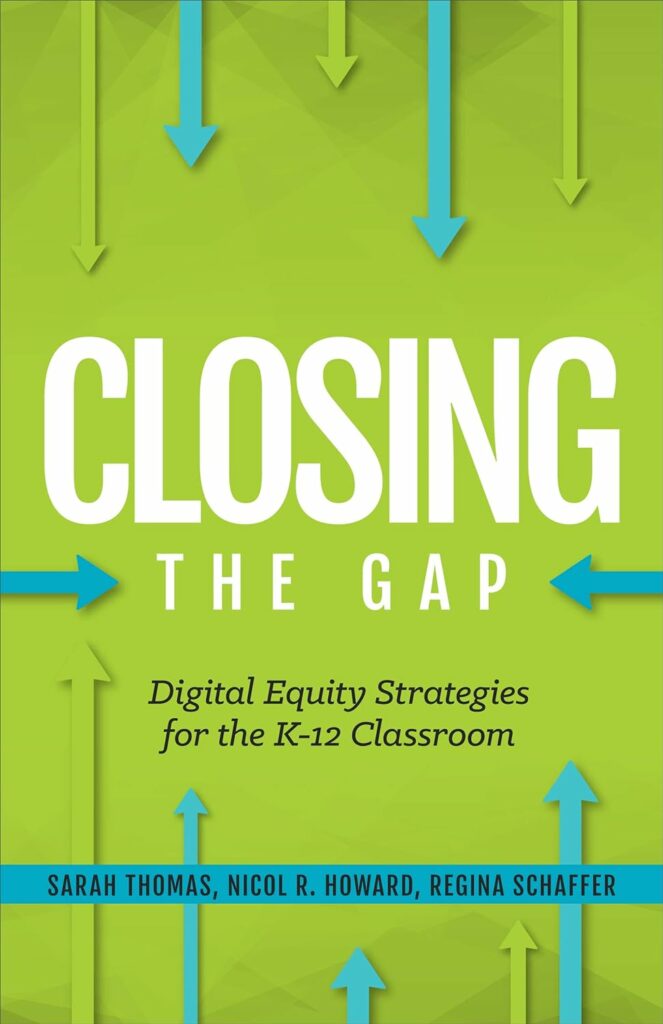
In “Closing the Gap” by Regina Schaffer, Nicol R. Howard, and Sarah Thomas, the focus is on achieving digital equity in education. Part of the ISTE book series, it combines historical insights and practical strategies to address digital equity challenges in K-12 education. The authors, with their varied expertise, offer solutions for teacher preparation, in-service training, and instructional coaching. This book is an essential resource for educators and stakeholders committed to ensuring equitable access to digital resources and opportunities for all students in diverse educational settings.
11. Tech Like a PIRATE , by Matt Miller
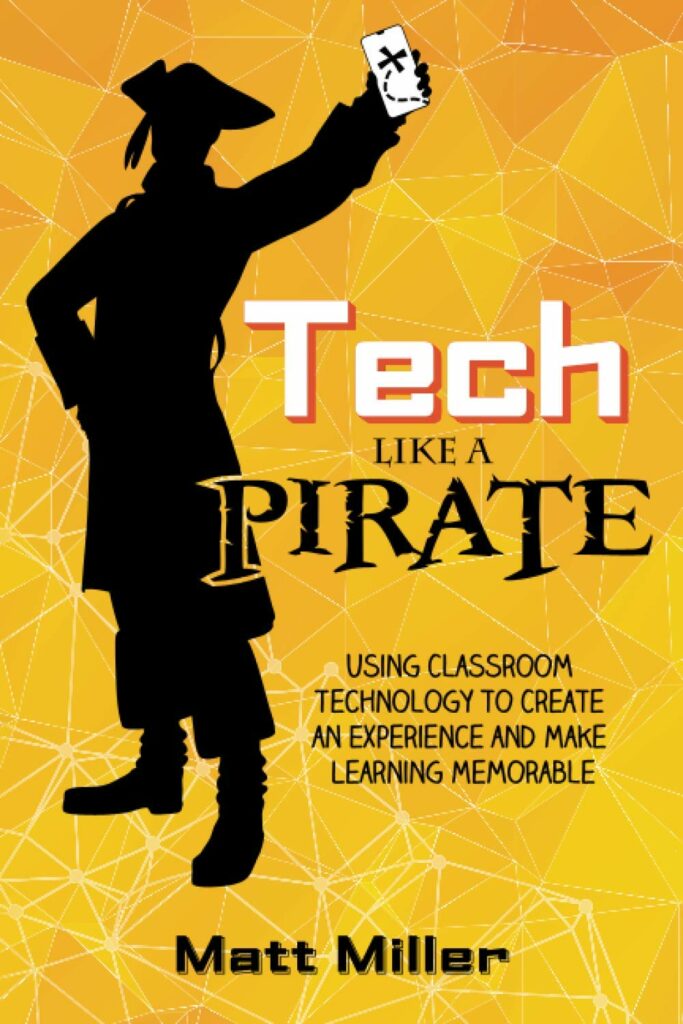
In “Tech Like a PIRATE,” Matt Miller presents innovative strategies for educators to use classroom technology creatively and effectively. This book is a guide for teachers of all tech-comfort levels to create memorable and impactful learning experiences using technology. Miller emphasizes that technology should be an asset, not a barrier, in education. He offers a set of customizable principles, practical examples, and a wealth of resources to help teachers electrify student engagement, even with limited resources. It’s an inspiring read for teachers aiming to innovate their classrooms with technology.
12. Illuminate: Technology Enhanced Learning , by Bethany Petty
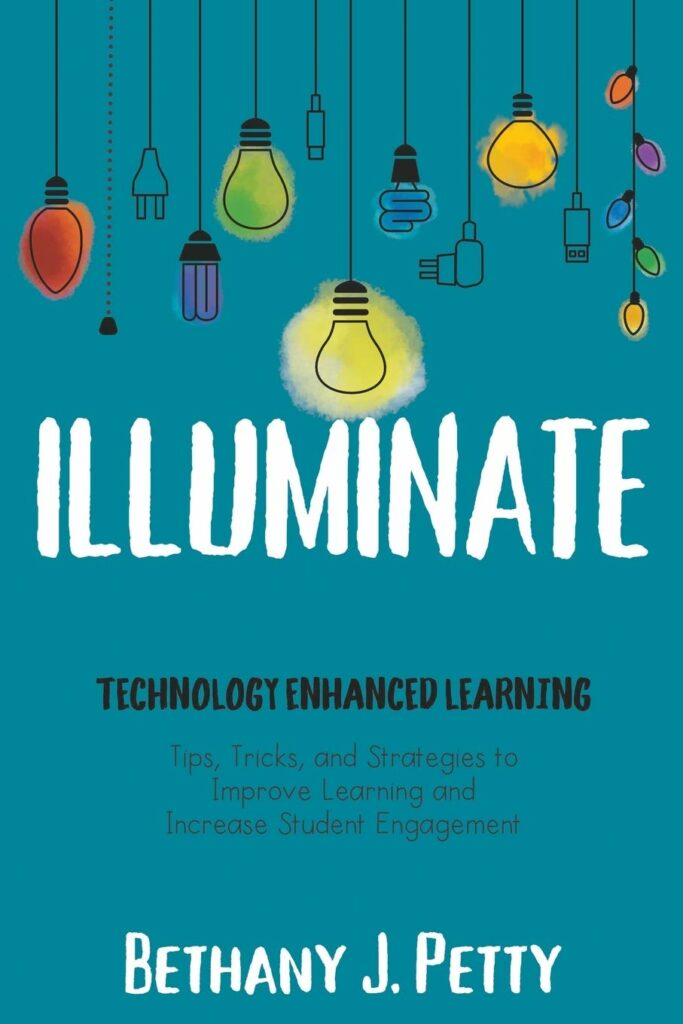
Bethany Petty’s “Illuminate” offers educators a straightforward, impactful guide to integrating technology into the classroom. The book is structured into ten accessible chapters, each filled with actionable ideas that teachers can implement immediately. Petty, an experienced educator and technology trainer, shares her insights on how technology can be used to enhance students’ learning experiences, making this book a valuable resource for teachers looking to make their lessons more dynamic and engaging with the use of technology.
13. The Anti-Education Era: Creating Smarter Students through Digital Learning , by James Paul Gee
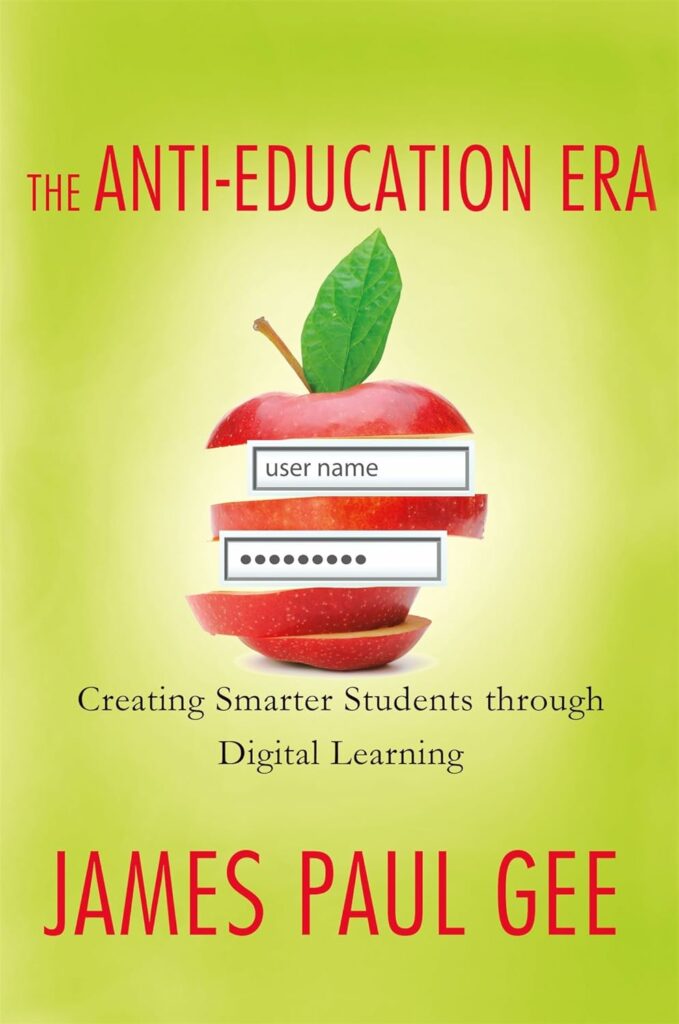
James Paul Gee’s “The Anti-Education Era” explores the complex relationship between digital learning and modern education. Gee warns of the potential pitfalls of new e-media in classrooms and advocates for synchronized intelligence—a harmonious blend of human creativity with digital tools. He discusses strategies for parents, educators, and policymakers to overcome the limitations of current educational systems. This book is a critical examination and a call to action to harness digital learning effectively for solving global challenges and enhancing educational experiences.
14. Harnessing Technology for Deeper Learning , by Scott McLeod, Julie Graber
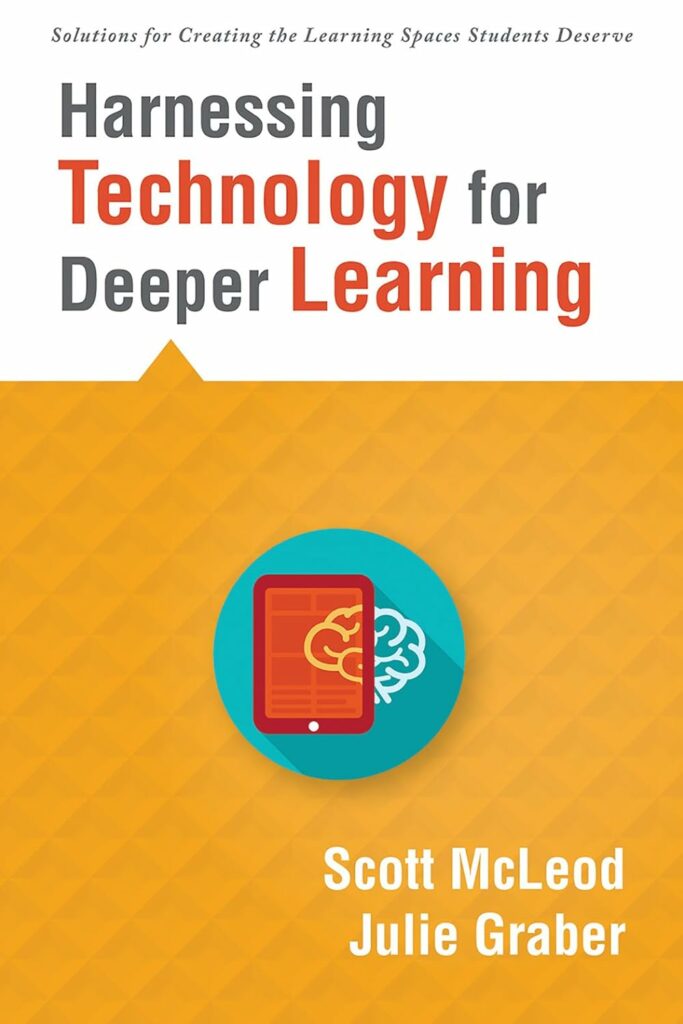
Scott McLeod and Julie Graber’s “Harnessing Technology for Deeper Learning” is a concise guide to transforming classrooms with educational technology. The book provides educators with a clear framework for integrating digital tools in a way that promotes deeper, personalized learning. McLeod and Graber offer practical strategies and insights for overcoming common implementation challenges and reshaping instruction. Their focus is on creating learning experiences that are meaningful and engaging, making this book a vital resource for educators looking to enhance their teaching with technology.
Related: Best Books on Race and Technology
Final thoughts
The EdTech book I share above offer a unique perspective on educational technology, equipping educators with the tools, strategies, and inspiration needed to navigate the dynamic world of digital learning.
The common thread among these works is the unwavering belief in the transformative power of technology in education. From creating engaging and memorable learning experiences to addressing the challenges of digital equity, these authors provide a roadmap for educators to follow. They remind us that technology, when used thoughtfully and creatively, can be a formidable force in enhancing the educational journey of our students.
Related Posts
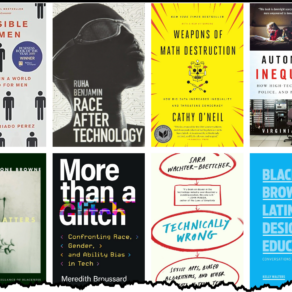

Meet Med Kharbach, PhD
Dr. Med Kharbach is an influential voice in the global educational landscape, with an extensive background in educational studies and a decade-long experience as a K-12 teacher. Holding a Ph.D. from Mount Saint Vincent University in Halifax, Canada, he brings a unique perspective to the educational world by integrating his profound academic knowledge with his hands-on teaching experience. Dr. Kharbach's academic pursuits encompass curriculum studies, discourse analysis, language learning/teaching, language and identity, emerging literacies, educational technology, and research methodologies. His work has been presented at numerous national and international conferences and published in various esteemed academic journals.
Join our mailing list
Subscribe to our email list for bite-sized book summaries, curated recommendations, and exclusive content.
Subscribe for exclusive resources .
You have successfully joined our subscriber list.
- Call for Proposals
- About the Encyclopedia
- Organizational Structure
- Author Guide
- Graphics and Styling
- Submit a Manuscript
- Reviewer Guide
- Publishing and Peer Review Process
- Student Internships
- Policy Information
- Meet the Authors
- Author Demographics
- Abbreviations
- Academic Communities of Engagement (ACE) Framework
- Augmented Reality
- Blended Teaching
- Cognitive Load Theory
- Creative Commons Licenses
- Decision-based Learning
- Emergency Remote Teaching
- Help-seeking
- Information Literacy
- Makerspaces
- Microcredentials
- Microlearning
- Online Mentoring
- Open Educational Practices
- Open Educational Resources
- Open Pedagogy
- Open Recognition
- Personalized Learning
- Phenomenology
- Prompt Literacy
- Professional Learning Networks
- Q Methodology
- Self-Efficacy
- Technocentrism
- Technology Infusion in Teacher Preparation
- Endorsements
- Front Matter
Choose a Sign-in Option
Tools and Settings
Questions and Tasks
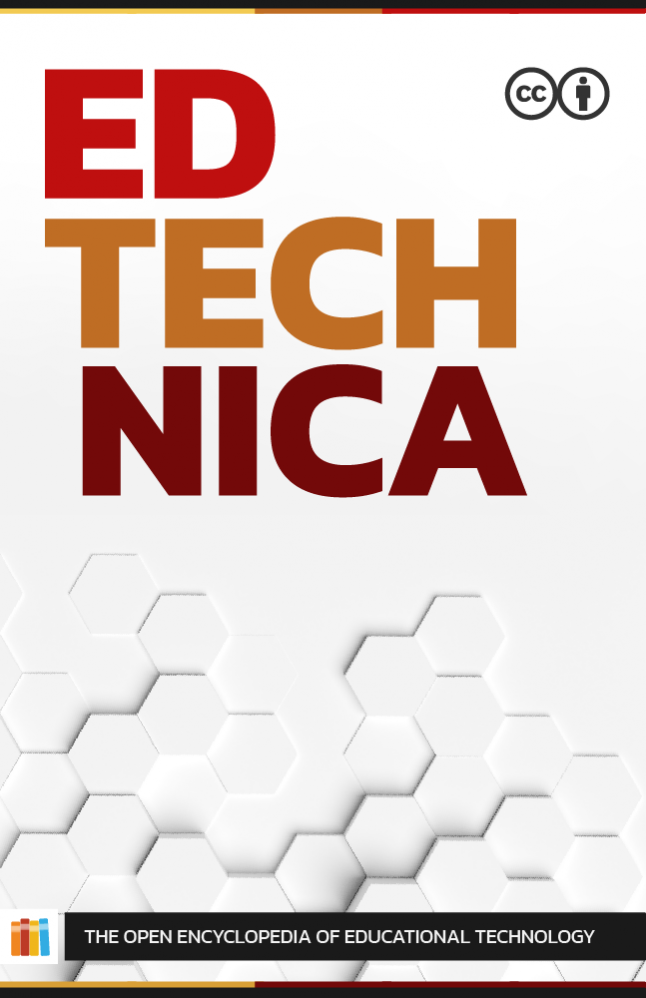
Citation and Embed Code

This encyclopedia is a living volume that provides an entry point for learning about the educational technology field and that evolves over time with additional contributions and resources. Representing the perspectives of educational technology researchers, instructors, designers, developers, and practitioners throughout the world, it includes short, focused articles on foundational topics ranging from learning and design concepts to emerging technologies to policies shaping the future of educational technology. Each article is peer-reviewed and intended to provide an expert and up-to-date understanding of the topic, while also providing a space for community contributors to share helpful resources related to the topic.
Table of Contents
EdTech Books
CC BY : This work is released under a CC BY license, which means that you are free to do with it as you please as long as you properly attribute it.
The publisher EdTech Books does not have a physical location, but its primary support staff operate out of Provo, UT, USA.
The publisher EdTech Books makes no copyright claim to any information in this publication and makes no claim as to the veracity of content. All content remains exclusively the intellectual property of its authors. Inquiries regarding use of content should be directed to the authors themselves.
DOI: 10.59668/371
URL: https://edtechbooks.org/encyclopedia

University of Massachusetts Amherst
- Submit A Post
- EdTech Trainers and Consultants
- Your Campus EdTech
- Your EdTech Product
- Your Feedback
- Your Love for Us
- EdTech Product Reviews
ETR Resources
- Mission/Vision
- Testimonials
- Our Clients
- Press Release
10 Books You Must Read To Kickstart Your EdTech Journey
As an educator, you already know how essential reading is.
The addition of new books and publications in any niche is never-ending, but they too get outdated like technology. Speaking of edtech, it isn’t easy to find a book covering all aspects of education technology. No ‘one book’ will give you insights on the use of social media, tools that you can use, how to start using technology in the classroom, understand different perspectives on the use of technology, results, effects, and all other concerns of starting with technology in the classroom.
However, this list of 10 books include detailed insights and knowledge to help you kickstart and determine the right path for using EdTech for your students or school.
The Really Useful #EdTechBook by David Hopkins
This book is about the experiences, reflections, hopes, passions, expectations, and professionalism of those working with, in, and for the use of technology in education. Not only is it an insight into how, or why, educators work with these technologies, it’s more about how educators as learning professionals got to where they are and how they go forward with their development.
In this book, respected individuals from different education sectors write about many aspects of learning technology and come together to share their experiences.
21st Century Skills: Rethinking How Students Learn by James Bellanca and Ron Brandt
It is easier for students to get used to technology or learn new technologies quickly compared to educators. It seems like they are born with digital DNA. This book is a perfect fit for educators who struggle to adapt to technology’s fast-changing nature or face problems in incorporating technology into their classrooms. The book covers how educators can change and adapt with technology to continue to connect with students. It is one of a series. You can pick up the other books to fully understand how understanding current technology will give you the necessary tools to connect with students.
A New Culture of Learning: Cultivating the Imagination of a World of Constant Change by Douglas Thomas and John Seely Brown
This book looks at how constant change helps to keep students inspired in the potential of the future. The authors look at how the culture associated with technology has become fluid and adaptable. It is also an incredible challenge for educators. It contains numerous stories and exciting tales about those challenges and how technology even provides many answers to the problems it creates.
“A provocative and fundamental new paradigm of a ‘culture of learning’, appropriate for a world characterized by continual change. This is a must-read for anyone interested in the future of education.” James J. Duderstadt, President Emeritus, University of Michigan
Blogs, Wikis, Podcasts and Other Powerful Web Tools for Classrooms by Will Richardson
Social media platforms are the go-to communication tool for most students today. This book will help you use technology for everyday classroom needs. There are plenty of suggestions about making the most of these unique aspects of technology with different tricks and tips.
“This book is loaded with insightful and honest advice about Web 2.0 in education. Will Richardson has amassed decades of technology integration experience as a teacher, consultant, blogger, and educational leader. There are few like him and a few books like this.” — Curtis J. Bonk, Professor, Indiana University
The Race between Education and Technology by Claudia Goldin, and Lawrence F. Katz
While we believe that technology in education is instead a new concept, this book explores how it has always been a part of education; maybe in the background but a crucial part of it; just not on the same scale as today.
“If you want to understand the causes of the innovation deficit, I’d recommend adding one serious book to your summer reading list: The Race Between Education and Technology.”- David Leonhardt, New York Times.
InventTo Learn: Making, Tinkering, and Engineering in the Classroom by Sylvia Libow Martinez
This book focuses on the power of learning by doing. Focusing on the concept of Maker Movement, the book will help you get insights on using technology to make, repair, or customize the things we need brings engineering, design, and computer science to the masses.
“Educators will be hard-pressed to find a more essential, important book for making sense of not just the exciting, game-changing “maker” technologies that are currently exploding around us, but of the compelling learning opportunities; they present for our students as well. Invent To Learn creates a required new context for modern learning. It offers an accessible roadmap for re-imagining schools, classrooms, and personal practice. It’s a must-read for those wanting to remain relevant in their student’s learning lives.” – WillRichardson, Author of Why School?
Out of Our Minds: Learning To Be Creative by Sir Ken Robinson
Ken Robinson argues that organizations everywhere are trying to fix a problem that originates in schools and universities: “It is often said that education and training are the keys to the future. They are, but a key can be turned in two directions. Turn it one way, and you lock resources away, even from those they belong to. Turn it the other way, and you release resources and give people back to themselves. To realize our true creative potential in our organizations, we need to think differently about ourselves and act differently in our schools and our communities. We must learn to be creative.”- Ken Robinson.
His argument against the way we have been teaching with false promises of a better future without equipping the youth to build that “better future” is all this book is about. There are plenty of case studies where he proves where we’re going wrong.
The updated 3rd edition of this book features a new introduction, modernized case studies, updated demographics, and revised sections around technological developments and recent education system changes. Author Sir Ken Robinson is an internationally recognized authority on creativity. His TED talk on the subject is the most-watched video in TED’s history. The list would have been incomplete without the mention of this book. A must-read!
Teaching with Tools Kids Really Use: Learning with The Web and Mobile Technologies by Susan J. Brooks-Young
The book will give you insights into the potential of standard technologies like Facebook that we use every day. all they need is to use them for the right reasons and the right way because students are already familiar with these tools. As an educator, all you have to do is guide them in the right direction. It covers various web tools and how they can be used for classroom instruction. The book explains how students’ tools to school every day can be used to enhance their experience. It also talks about the ethical use of the internet and digital citizenship, which is of utmost importance to help children use the internet safely.
“The author empowers teachers to engage IT, specialists or administrators, in a discussion about the use of mobile technologies or Web 2.0 tools and to change the way we think about using technology with kids. This book gives readers lots of information (ammunition) to go out and make things happen with their cell phone, laptop, MP3 player, or digital camera!” – April DeGennaro, Gifted Education Teacher, Fayette County Board of Education, Fayetteville, GA.
DIY U: Edupunks, Edupreneurs, and the Coming Transformation of Higher Education by Anya Kamenetz
Living in times where people go under debt for further schooling, it is a very timely book. The book examines the roots of the words “College and university” and argues about how the existing system can be changed to reach a broader audience in better ways. The book also focuses on how technology has made it easy to create the right environment to educate students. Significant importance is laid on open-source education ideas, where people can share their knowledge about the latest in technology. “Anya Kamenetz is one of the best reporters and commentators on the millennial generation and its economic future. In DIY U, she offers a provocative, highly readable take on the growing challenge of ensuring an affordable college education. She envisions an alternative path that would shake up the established order and radically transform how we learn.”- David Halperin, Director, Campus Progress, and Senior Vice President, Center for American Progress.
Digital Leadership: Changing Paradigms for Changing Times by EricSheninger
In this book, Eric Sheninger shares his Pillars of Digital Leadership to help readers:
- Transform school culture by initiating sustainable change.
- Use free social media tools to improve communication, enhance public relations, and create a positive brand presence.
- Integrate digital tools into classroom instruction to increase student engagement and achievement.
- Facilitate professional learning and new opportunities and resources through digital technology.
The author paints a very realistic and clear picture of why leaders need to embrace technology (not just tell their teachers to do so) and how they can go about doing that. It’s a must-read for every person leadership position within a school.
“This book is THE book on digital leadership. There is no one I can recommend more highly than the most connected educational leader today – Eric Sheninger – to help us navigate all of the changes taking place in classrooms, schools, and districts. The book is perfect for helping everyone initiate transformational change in a digital world. Whether you are a cutting edge techie or a nervous newbie, this book is for you.” – Todd Whitaker, PhD, Professor of Educational Leadership, Indiana State University.
Tech.edu: A Hopkins Series on Education and Technology
Acquisitions Editor: Greg Britton
Tech.EDU series books meet at the intersection of technology and learning in higher education. From online platforms and the gamification of the classroom to the long history of teaching technologies and the future of digital learning, this series presents innovations in teaching and learning in context.
Filter Books
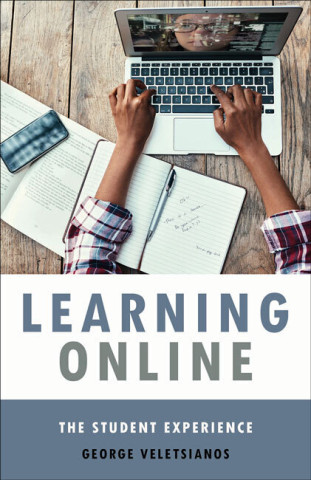
George Veletsianos
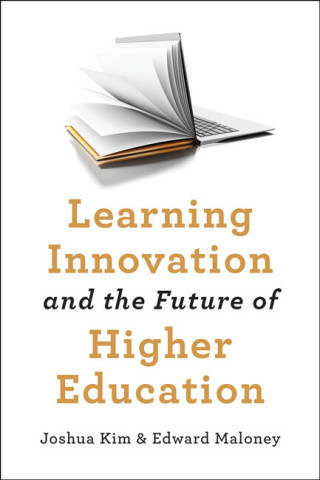
Joshua Kim and Edward Maloney
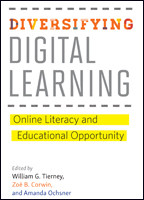
edited by William G. Tierney, Zoë B. Corwin, and Amanda Ochsner
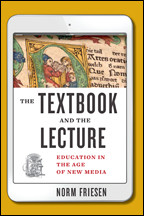
Norm Friesen
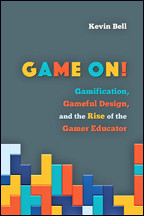
Bill Ferster
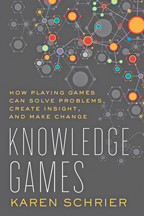
Karen Schrier
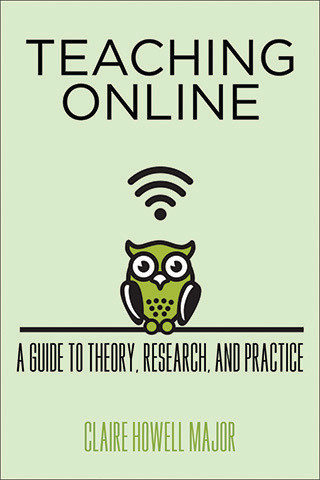
Claire Howell Major
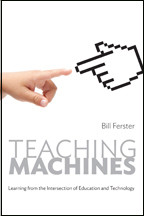
Thomas Leitch
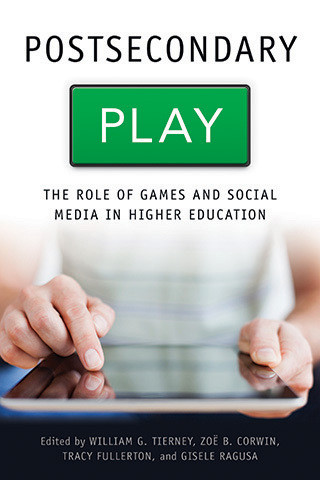
edited by William G. Tierney, Zoë B. Corwin, Tracy Fullerton, and Gisele Ragusa
with Hopkins Press Books

Inclusive Technology-Enhanced Education
- First Online: 26 October 2022
Cite this chapter

- Linda Daniela 6
Part of the book series: Educational Communications and Technology: Issues and Innovations ((ECTII))
637 Accesses
1 Citations
With the development of digital solutions, a variety of hardware, software, digital learning materials, and digital learning content is now available on the market. All of these technological solutions can serve as support materials for an inclusive learning environment but, at the same time, can involve hidden risks that can create even greater gaps in inclusive education. If we are not aware of these challenges in a digital learning environment, we will not be able to find ways to overcome them. It is important to develop an understanding of opportunities to use digital technologies to support inclusive technology-enhanced education, close the digital divide that exists, and ensure that digital technologies are not supporting new risks of exclusion from the digital learning environment, thereby creating glass ceilings for students with diverse needs.
This chapter summarizes the challenges and risks for inclusive education that may arise in the digital environment. Various problems that require attention are discussed, and a graphical representation of an inclusive technology-enhanced education ecosystem has been created.
This is a preview of subscription content, log in via an institution to check access.
Access this chapter
- Available as PDF
- Read on any device
- Instant download
- Own it forever
- Available as EPUB and PDF
- Compact, lightweight edition
- Dispatched in 3 to 5 business days
- Free shipping worldwide - see info
- Durable hardcover edition
Tax calculation will be finalised at checkout
Purchases are for personal use only
Institutional subscriptions
Ainscow, M. (2020). Promoting inclusion and equity in education: Lessons from international experiences. Nordic Journal of Studies in Educational Policy: A School for All, 6 (1), 7–16. https://doi.org/10.1080/20020317.2020.1729587
Article Google Scholar
Atwood, D. R., & Schroer, S. E. (2018). “Just don’t get too personal”: Millennial students’ perceptions of transformative teaching. In J. Keengwe (Ed.), Handbook of research on pedagogical models for next-generation teaching and learning (pp. 249–264). IGI Global. https://doi.org/10.4018/978-1-5225-3873-8.ch014
Chapter Google Scholar
Basant, R., & Sen, G. D. (2014). Access to higher education in India: An exploration of its antecedents. SSRN . https://doi.org/10.2139/ssrn.2535644
Breidlid, A., & Breidlid, H. (2013). Women in South Sudan: Education, empowerment and identity construction. In H. B. Holmarsdottir, V. Nomlomo, A. I. Farag, & Z. Desai (Eds.), Gendered voices: Reflections on gender and education in South Africa and Sudan (pp. 99–115). Brill.
Cedeño, L. F., Martínez-Arias, R., & Bueno, J. A. (2016). Implications of socioeconomic status on academic competence: A perspective for teachers. International Education Studies, 9 (4), 257–267. https://doi.org/10.5539/ies.v9n4p257
Civitillo, S., Juang, L. P., & Schachner, M. K. (2021). Stressing similarities or ignoring differences? Shedding light into different forms of color-evasive ideology with pre- and in-service teachers. Zeitschrift für Erziehungswissenschaft, 24 , 135–153. https://doi.org/10.1007/s11618-021-00995-9
Daniela, L. (2019). Smart pedagogy for technology enhanced learning. In L. Daniela (Ed.), Didactics of Smart Pedagogy: Smart Pedagogy for Technology Enhanced Learning (pp. 3–22). Springer. ISBN 978-3-030-01550-3.
Google Scholar
Daniela, L. (2020). The concept of smart pedagogy for learning in the digital world. In L. Daniela (Ed.), Epistemological approaches to digital learning in educational contexts (pp. 1–16). Taylor & Francis. ISBN 9780367333799.
Daniela, L. (2021). Smart pedagogy as a driving wheel for technology-enhanced learning. Technology, Knowledge and Learning, 26 , 711–718. https://doi.org/10.1007/s10758-021-09536-z
Daniela, L., & Lytras, M. D. (2018). Educational robotics for inclusive education. Technology, Knowledge and Learning, 24 , 219–225. https://doi.org/10.1007/s10758-018-9397-5
Daniela, L., & Rūdolfa, A. (2019). Learning platforms: How to make the right choice. In L. Daniela (Ed.), Didactics of smart pedagogy: Smart pedagogy for technology enhanced learning (pp. 191–209). Springer.
Galkienė, A., & Monkevičienė, O. (2021). Preconditions of transforming the educational process by applying inclusive education strategies: Theoretical background. In A. Galkiene & O. Monkevičienė (Eds.), Improving inclusive education through universal design for learning (pp. 1–21). Springer.
Gannon, K. (2022, March 24). Taliban break promise on higher education for Afghan girls . The Diplomat. https://thediplomat.com/2022/03/taliban-break-promise-on-higher-education-for-afghan-girls/
Gayton, A. (2010). Socioeconomic status and language-learning motivation: To what extent does the former influence the latter. Scottish Languages Review, 22 (1), 17–28.
Greany, K. (2008). Rhetoric versus reality: Exploring the rights-based approach to girls’ education in rural Niger. Compare, 38 (5), 555–568. https://doi.org/10.1080/03057920802351317
Halinen, I., & Järvinen, R. (2008). Towards inclusive education: The case of Finland. Prospects, 38 (1), 77–97. https://doi.org/10.1007/s11125-008-9061-2
Hertzog, C., Price, J., & Dunlosky, J. (2012). Age differences in the effects of experimenter-instructed versus self-generated strategy use. Experimental Aging Research, 38 (1), 42–62. https://doi.org/10.1080/0361073x.2012.637005
Herzog-Punzenberger, B., Altrichter, H., Brown, M., Burns, D., Nortvedt, G. A., Skedsmo, G., Wiese, E., Nayir, F., Fellner, M., McNamara, G., & O’Hara, J. (2020). Teachers responding to cultural diversity: Case studies on assessment practices, challenges and experiences in secondary schools in Austria, Ireland, Norway and Turkey. Educational Assessment, Evaluation and Accountability, 32 , 395–424. https://doi.org/10.1007/s11092-020-09330-y
Hitch, D., Macfarlane, S., & Nihill, C. (2015). Inclusive pedagogy in Australian universities: A review of current policies and professional development activities. International Journal of the First Year in Higher Education, 6 (1), 135–145. https://doi.org/10.5204/intjfyhe.v6i1.254
Hui, N., Vickery, E., Njelesani, J., & Cameron, D. (2018). Gendered experiences of inclusive education for children with disabilities in West and East Africa. International Journal of Inclusive Education, 22 (5), 457–474. https://doi.org/10.1080/13603116.2017.1370740
Jahnukainen, M. (2015). Inclusion, integration, or what? A comparative study of the school principals’ perceptions of inclusive and special education in Finland and in Alberta, Canada. Disability & Society, 30 (1), 59–72. https://doi.org/10.1080/09687599.2014.982788
Lewis, H. (2020, March 19). The Coronavirus is a disaster for feminism . The Atlantic. https://www.theatlantic.com/international/archive/2020/03/feminism-womens-rights-coronavirus-covid19/608302/
Liasidou, A. (2012). Inclusive education and critical pedagogy at the intersections of disability, race, gender and class. Journal for Critical Education Policy Studies, 10 (1), 168–184. http://www.jceps.com/wp-content/uploads/PDFs/10-1-12.pdf
Lindsay, G. (2007). Educational psychology and the effectiveness of inclusive education/mainstreaming. British Journal of Educational Psychology, 77 (1), 1–24. https://doi.org/10.1348/000709906x156881
Maeda, K., Hashimoto, H., & Sato, K. (2021). Creating a positive perception toward inclusive education with future-oriented thinking. BMC Research Notes, 14 , 467. https://doi.org/10.1186/s13104-021-05882-4
Miles, S., & Singal, N. (2010). The education for all and inclusive education debate: Conflict, contradiction or opportunity? International Journal of Inclusive Education, 14 (1), 1–15. https://doi.org/10.1080/13603110802265125
Mizunoya, S., Mitra, S., & Yamasaki, I. (2016). Towards inclusive education: The impact of disability on school attendance in developing countries . Innocenti Working Paper WP 2016-03. UNICEF.
Möhring, K., Naumann, E., Reifenscheid, M., Blom, A. G., Wenz, A., Rettig, T., Lehrer, R., Krieger, U., Juhl, S., Friedel, S., Fikel, M., & Cornesse, C. (2020). Die Mannheimer Corona-Studie: Schwerpunktbericht zu Erwerbstätigkeit und Kinderbetreuung [The Mannheim Corona Report: Focus on employment and childcare]. https://www.uni-mannheim.de/gip/corona-studie/
Mullick, J., Ahmmed, M., & Sharma, U. (2014). Prospects and challenges in implementing inclusive education reform in SAARC countries. In H. Zhang, P. W. K. Chan, & C. Boyle (Eds.), Equality in education: Fairness and inclusion (pp. 95–105). Springer.
Nīmante, D., Baranova, S., & Stramkale, L. (2021). The university administrative staff perception of inclusion in higher education. Acta Paedagogica Vilnensia, 46 , 90–104. https://doi.org/10.15388/ActPaed.2021.46.6
Pulkkinen, J., Räikkönen, E., Pirttimaa, R., & Jahnukainen, M. (2019). Principals’ views on changes in the provision of support for learning and schooling in Finland after educational reform. Journal of Educational Change, 20 , 137–163. https://doi.org/10.1007/s10833-018-9334-3
Roche, S. (2016). Education for all: Exploring the principle and process of inclusive education. International Review of Education, 62 , 131–137. https://doi.org/10.1007/s11159-016-9556-7
Rogers, E. M. (2001). The digital divide. Convergence, 7 (4), 96–111. https://doi.org/10.1177/135485650100700406
Rubene, Z., Daniela, L., Nīmante, D., & Kraģe, G. (2016). Harmonization of the tertiary education program through the principles of inclusive education: The case of Latvia. In L. Daniela & L. Rutka (Eds.), Selected papers of the association for teacher education in Europe spring conference 2015 (pp. 1–16). Cambridge Scholars Publishing.
Rubene, Z., Daniela, L., Sarva, E., & Rūdolfa, A. (2021). Digital transformation of education: Envisioning post-Covid education in Latvia. In L. Daniela (Ed.), Human, technologies and quality of education, 2021 = Cilvēks, tehnoloģijas un izglītības kvalitāte, 2021 (pp. 180–196). University of Latvia Press. https://doi.org/10.22364/htqe.2021.13
Rūdolfa, A., & Daniela, L. (2021). Learning platforms in the context of the digitization of education: A strong methodological innovation. The experience of Latvia. In D. Scaradozzi, L. Guasti, M. Di Stasio, B. Miotti, A. Monteriù, & P. Blikstein (Eds.), Makers at school, educational robotics and innovative learning environments: Research and experiences from FabLearn Italy 2019 (pp. 213–221). Springer. https://doi.org/10.1007/978-3-030-77040-2_28
Salthouse, T. A. (1996). The processing-speed theory of adult age differences in cognition. Psychological Review, 103 (3), 403–428. https://doi.org/10.1037/0033-295x.103.3.403
Schiemer, M. (2017). Education for children with disabilities in Addis Ababa, Ethiopia: Developing a sense of belonging. Cham: Springer International. https://doi.org/10.1007/978-3-319-60768-9
Shankar, U., & Adipudi, A. V. (2021). Specific learning disabilities and higher education: The Indian scenario and a comparative analysis. Jindal Global Law Review, 12 , 395–415. https://doi.org/10.1007/s41020-021-00155-4
Shifrer, D., Muller, C., & Callahan, R. (2011). Disproportionality and learning disabilities: Parsing apart race, socioeconomic status, and language. Journal of Learning Disabilities, 44 (3), 246–257. https://doi.org/10.1177/0022219410374236
Shopland, N., Brown, D. J., Daniela, L., Rūdolfa, A., Rūdolfa, A., Rahman, M. A., Burton, A., Mahmud, M., & van Isacker, K. (2022). Improving accessibility and personalisation for HE students with disabilities in two countries in the Indian subcontinent – Initial findings. In M. Antona & C. Stephanidis (Eds.), Universal access in human-computer interaction: User and context diversity (pp. 110–122). Springer. https://doi.org/10.1007/978-3-031-05039-8_8
Skerrett, A. (2011). On identity, diversity, and educational change. Journal of Educational Change, 12 , 211–220. https://doi.org/10.1007/s10833-011-9153-2
Slee, R. (2018). Inclusive education: From policy to school implementation. In C. Clark, A. Dyson, & A. Millward (Eds.), Towards inclusive schools? (pp. 30–41). Routledge.
Sonnenschein, N., & Kamin, A. M. (2020). Digitally-supported inclusive vocational education: Conceptual considerations for the hotel and restaurant industry. In Universal access in human-computer interaction: User and context diversity (pp. 291–303). Springer.
Sundaram, M. S., Sekar, M., & Subburaj, A. (2014). Women empowerment: Role of education. International Journal in Management & Social Science, 2 (12), 76–85.
Topping, K. (2012). Conceptions of inclusion: Widening ideas. In C. Boyle & K. Topping (Eds.), What works in inclusion? (pp. 9–19). Open University Press.
Umbraško, S., Raščevska, M., Nīmante, D., & Šūmane I. (2018). Support measures for children with special needs in mainstream school in Latvia: Implementation and evaluation. EDULEARN18 Proceedings (p. 7831). IATED.
UNESCO. (2009). Policy guidelines on inclusion for education . http://unesdoc.unesco.org/images/0017/001778/177849e.pdf
UNESCO. (2014). Constitution of the United Nations Educational, Scientific and Cultural Organization. In UNESCO (Ed.), Basic texts (pp. 5–18). UNESCO. http://unesdoc.unesco.org/images/0022/002269/226924e.pdf
Van Gerven, P. W., Paas, F., & Tabbers, H. K. (2006). Cognitive aging and computer-based instructional design: Where do we go from here? Educational Psychology Review, 18 (2), 141. https://doi.org/10.1007/s10648-006-9005-4
Yang, J., & Yorozu, R. (2015). Building a learning society in Japan, the Republic of Korea and Singapore . UNESCO Institute for Lifelong Learning.
Download references
Author information
Authors and affiliations.
University of Latvia, Riga, Latvia
Linda Daniela
You can also search for this author in PubMed Google Scholar
Corresponding author
Correspondence to Linda Daniela .
Editor information
Editors and affiliations, rights and permissions.
Reprints and permissions
Copyright information
© 2022 The Author(s), under exclusive license to Springer Nature Switzerland AG
About this chapter
Daniela, L. (2022). Inclusive Technology-Enhanced Education. In: Daniela, L. (eds) Inclusive Digital Education. Educational Communications and Technology: Issues and Innovations. Springer, Cham. https://doi.org/10.1007/978-3-031-14775-3_1
Download citation
DOI : https://doi.org/10.1007/978-3-031-14775-3_1
Published : 26 October 2022
Publisher Name : Springer, Cham
Print ISBN : 978-3-031-14774-6
Online ISBN : 978-3-031-14775-3
eBook Packages : Education Education (R0)
Share this chapter
Anyone you share the following link with will be able to read this content:
Sorry, a shareable link is not currently available for this article.
Provided by the Springer Nature SharedIt content-sharing initiative
- Publish with us
Policies and ethics
- Find a journal
- Track your research

- Publications
Information and Communication Technologies in Education

The monograph presents a systematic overview of the results of analytical research organized by UNESCO IITE. The publication summarizes main trends, recommendations, experience of certain countries, as well as key areas for integration of new ICT in educational systems in the context of knowledge-based societies, globalization of information environment and evolution of alternative forms of education. The book will be useful for research and practical activities of school teachers, students and professors, researchers, educators at additional teacher training institutions, as well as policy-makers and education administrators.
Publication year: 2013

Want to create or adapt books like this? Learn more about how Pressbooks supports open publishing practices.
11 Transforming Student Learning with Effective Study Techniques

https://unsplash.com/photos/person-writing-on-brown-wooden-table-near-white-ceramic-mug-s9CC2SKySJM
Effective study techniques can significantly enhance student learning and academic performance. In today’s fast-paced educational environment, students face numerous challenges, from managing multiple assignments and homework to balancing extracurricular activities. Developing strong study habits is essential for success in both school and college.
Understanding how to study efficiently can make a significant difference in a student’s academic journey. By implementing the right techniques, students can improve their comprehension, retention, and overall performance. This article explores various study methods and provides valuable tips for students looking to transform their learning experiences with paperwriter .
The Importance of Effective Study Techniques
Effective study techniques are crucial for students aiming to achieve their academic goals. These techniques help in better time management, reducing stress, and improving understanding of complex subjects. With the right approach, students can make their study sessions more productive and less overwhelming.
One of the biggest challenges students face is the sheer volume of information they need to learn and retain. Effective study techniques can help break down this information into manageable chunks, making it easier to digest and remember. Moreover, students who develop good study habits early on are more likely to succeed in their future academic and professional endeavors.
Creating a Conducive Study Environment
A conducive study environment is essential for effective learning. Students should choose a quiet, comfortable place with minimal distractions to focus on their studies. A well-organized study space can significantly enhance concentration and productivity.
Tips for Creating a Conducive Study Environment:
- Choose a quiet location: Find a place free from noise and interruptions.
- Ensure good lighting: Proper lighting reduces eye strain and improves focus.
- Organize your materials: Keep all necessary supplies within reach to avoid unnecessary distractions.
- Comfortable seating: Choose a chair and desk that provide good support to maintain good posture.
Time Management and Scheduling
Time management is a critical skill for students. Balancing school, college, assignments, and homework can be challenging. Effective scheduling ensures that students allocate sufficient time for each subject and activity.
Strategies for Better Time Management:
- Create a study schedule: Plan your study sessions and stick to the schedule.
- Set priorities: Focus on the most important tasks first.
- Break tasks into smaller steps: Divide large assignments into manageable parts.
- Use a planner: Keep track of deadlines, assignments, and exams.
Active Learning Techniques
Active learning involves engaging with the material actively rather than passively reading or listening. This approach enhances understanding and retention.
Effective Active Learning Techniques:
- Summarization: Summarize key points in your own words.
- Questioning: Ask questions about the material and seek answers.
- Discussion: Discuss topics with classmates to gain different perspectives.
- Application: Apply what you have learned to real-world scenarios.
The Role of Technology in Studying
Technology can be a powerful tool for enhancing learning. Various apps and online resources can help students manage their study time, organize notes, and access educational materials.
Useful Technological Tools for Students:
- Note-taking apps: Apps like Evernote and OneNote help organize and store notes efficiently.
- Study apps: Apps like Quizlet and Anki offer flashcards and quizzes for effective revision.
- Time management apps: Tools like Trello and Todoist help students plan and track their tasks.( or visit https://do-my-math.com/ )
- Online resources: Websites like Khan Academy and Coursera provide additional learning materials.
Enhancing Memory and Retention
Improving memory and retention is vital for academic success. Students can employ various techniques to boost their ability to remember and recall information.
Techniques to Enhance Memory and Retention:
- Mnemonics: Use mnemonic devices to remember complex information.
- Visualization: Create mental images to associate with the material.
- Repetition: Review material regularly to reinforce learning.
- Teaching others: Explaining concepts to others helps solidify understanding.
Staying Motivated and Managing Stress
Maintaining motivation and managing stress are essential components of effective studying. Students need to find ways to stay motivated and cope with academic pressures.
Tips for Staying Motivated and Managing Stress:
- Set realistic goals: Set achievable short-term and long-term goals.
- Take breaks: Regular breaks prevent burnout and improve focus.
- Stay positive: Maintain a positive attitude towards learning.
- Seek support: Reach out to teachers, peers, or counselors for help when needed.
Incorporating effective study techniques can transform the learning experience for students. By creating a conducive study environment, managing time efficiently, engaging in active learning, utilizing technology, enhancing memory, and staying motivated, students can achieve academic success. Remember, the key to effective studying lies in consistency and dedication. With the right approach, every student can improve their learning outcomes and reach their full potential.
Effective study habits not only help students excel in their current studies but also prepare them for future challenges. By implementing these strategies, students can turn studying into a more enjoyable and rewarding experience, ultimately leading to better academic performance and personal growth. Investing time in developing good study habits today will pay off in the long run, making the journey through school and college a successful one.
Education Copyright © by john44. All Rights Reserved.
Share This Book

- Get IGI Global News

- All Products
- Book Chapters
- Journal Articles
- Video Lessons
- Teaching Cases
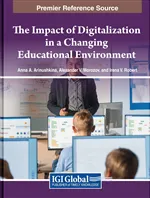
The Impact of Digitalization in a Changing Educational Environment
- Printed-On-Demand (POD)
- Usually ships one day from order
- Multi-user license (no added fee)
- Immediate access after purchase
- PDF download
- Receive a 10% Discount on eBooks
- Purchase individual chapters from this book
- Immediate PDF download after purchase or access through your personal library
A resounding question from the world of education remains; who truly benefits from digitalization in education and does it why matter? Digital transformation brings about fundamental changes to the educational methodological base, ensuring access to a wide array of information in various forms, but often the potential drawbacks are not properly addressed. This can include weakened reasoning skills and shallow learning due to excessive reliance on visualized information. The Impact of Digitalization in a Changing Educational Environment showcases how digital transformation can lead to a high-quality restructuring of the entire educational system, while navigating potential pitfalls. Addressing the psychological and pedagogical aspects, the book emphasizes that the successful development of digital learning environments hinges on not only advanced technical resources but also competent support and supervision of educational process participants.
The reader will find a wealth of relevant, practical methods, and approaches that positively impact the educational process's participants. The book showcases applied research cases modifying various aspects of national-level educational systems, including the implementation of a nationwide hot meals program in schools. It examines special educational needs, the quality of education, and prevention of deviant behavior among teenagers, all while offering insights into cross-cultural communication and approaches.
Focusing on the impact of digitalization and digital transformation, this book brings to light the latest teaching methodologies, providing practical advice for managing the changes induced by digitalization in educational institutions. The findings presented are rooted in current practices developed by leading scholars, offering actionable recommendations for improving the lives of children, families, parents, and educators in this evolving educational landscape.
Intended for a diverse readership, including policymakers, academics, educators, researchers, parents, school administrators, and the learning industry, this book also serves as an invaluable resource for further and continuing education lecturers. Its extensive coverage includes various fields like digital transformation, educational management, quality assessment, cross-cultural studies, distant learning, continuous professional development, and more.
The many academic areas covered in this publication include, but are not limited to:
- Cross-Cultural Communication
- Digital Didactics
- Digital Transformation
- Education Management
- Health-Saving Technologies
- ICT Usage at Schools
- Inclusion of ICT in Schools
- Nationwide Catering Organization
- Organizing Feedback Mechanisms
- Personnel Reserve Formation
- Quality of Education
- Regional Regulations
- Secondary and Higher Education
- Special Educational Needs and Digitalization
- Subjective Well-Being


Decoding tech: 5 books that teach essential computer skills to kids
C hildren are growing up in a world filled with technology that changes every day. The technology we have today may look entirely different in 20 years — even in 5! Young people are going to be instrumental in some of the biggest advancements in the future of technology. So, learning some basic skills and essential information about how things work is a great place to start.
These five books teach computer skills, data literacy, and some of the more interesting capabilities of technology in ways that are easy for beginners to understand — whether they’re children learning about the world or adults trying to learn a new skill!
Learn the Language of Computers by William Anthony
Computers have become a major part of every person’s daily life — and young people are growing up in a world where they are constantly using computers for school, gaming, or communication. For some, computers are a hobby or a fun project to work on, for others, they are a necessity in everyday life. But in order to use a computer to its full extent, kids need to learn the basics and to be able to troubleshoot any problems. With essential vocabulary that will help them identify computer parts and programs, to solutions for fixing hardware and software, children can become experts in the language of computers! The book is full of accessible examples, age-appropriate language and lessons.
SQL Quest: A Journey Through Data by Neha Saini
SQL Quest is an instructional book for 11-to-18-year-olds that seamlessly, enjoyably and excitedly makes the SQL (Structured Query Language) relational database accessible to young readers. It demonstrates how databases can be used to organize and manipulate information. Why should someone learn SQL in the first place? Saini points out that it is a valuable skill, teaches problem-solving, helps with data literacy, and is fun and engaging.
While the instruction within is plentiful and easy to follow, Saini is a keen guide who understands how young minds might tend to wander. As such, she fills the book with exercises, challenges, puzzles, fun facts and examples of real-world applications for SQL and databases at large.
How to Code a Rollercoaster by Josh Funk, illustrated by Sara Palacios
This fictional and informative story highlights the fun to be found in computer science and how math can be applied to everyday activities. When our protagonist Pearl and her robot best friend Pascal arrive at the amusement park, they’re eager to make the most out of their day. That means calculating how many ride tokens they use throughout the day and finding the opportune time to ride the Python Coaster in the hopes of beating the long wait! Sara Palacios illustrates how the pair uses code throughout the day. Real-life software engineer Josh Funk lays out his expertise in the field in a way young readers — and tech-challenged parents! — can easily understand, providing a fun and informative read for everyone.
Machine Learning for Kids by Dale Lane
This hands-on introduction to Artificial Intelligence and machine learning is a timely and necessary book for children in the modern era. Kids will be able to familiarize themselves with the building blocks of AI and understand how easy it is for computers to learn from them! With a companion website to visit as you read, " Machine Learning for Kids" sets readers up with step-by-step instructions, activities and models that they can turn into computer games and apps. Requiring no prior experience, this activity book is a great bonding tool for adults and the children in their lives as they build and interact with their own AI programs!
Design, Animate and Create with Computer Graphics by Max Wainewright
Technology is not just for the kids whose favorite subjects are math and science — artists and creative thinkers are some of the best minds behind technology and the media we interact with every day. Children will love exploring their artistic side with this easy-to-navigate guide about design, animation and computer graphics. The book focuses on important areas of computer graphics and explains the basics of the free computer software readers can use to create their art. With real examples and inspiration from famous artists, children will be creating their own art as soon as they turn the final page!
©2023 BookTrib. Distributed by Tribune Content Agency, LLC.

Online Comics Platform Webtoon Reveals Revenue Growth, Profitability in US IPO Filing
(Reuters) - Online comics platform Webtoon Entertainment swung to a profit in the first quarter while growing its revenue by 5%, it disclosed on Friday in its filing for an initial public offering (IPO) in the United States.
The company, owned by South Korean communications technology giant Naver Corp, operates a library of web-novel and comics available to users in over 150 countries. Users can also publish their own work on it.
It was founded in 2005, as a side-project of CEO Junkoo Kim, then a search engineer at Naver. The company currently has 170 million monthly active users, who visit its platform at least once a month on average.
Los Angeles-based Webtoon will enter the market on the heels of some high-profile listings, including social media platform Reddit and China-based EV maker Zeekr, which have boosted investors' interest in the IPO market.
Webtoon's net income was $6.2 million, or $1.73 per share, for the three months ended March 31, compared to a loss of $18.3 million, or $4.80 per share, last year. Revenue for the period was $326.7 million, versus $310.3 million a year earlier.
Goldman Sachs, Morgan Stanley, J.P. Morgan and Evercore ISI are the lead underwriters for the IPO. Webtoon is seeking to list its shares on Nasdaq under the symbol "WBTN."
(Reporting by Niket Nishant in Bengaluru; Editing by Alan Barona)
Copyright 2024 Thomson Reuters .
Join the Conversation
Tags: South Korea , United States , books , Japan
America 2024

Health News Bulletin
Stay informed on the latest news on health and COVID-19 from the editors at U.S. News & World Report.
Sign in to manage your newsletters »
Sign up to receive the latest updates from U.S News & World Report and our trusted partners and sponsors. By clicking submit, you are agreeing to our Terms and Conditions & Privacy Policy .
You May Also Like
The 10 worst presidents.
U.S. News Staff Feb. 23, 2024

Cartoons on President Donald Trump
Feb. 1, 2017, at 1:24 p.m.

Photos: Obama Behind the Scenes
April 8, 2022

Photos: Who Supports Joe Biden?
March 11, 2020

NYC’s Verdict on Trump: Not One of Us
Lincoln Mitchell June 1, 2024

Will Trump’s Guilty Verdict Help Biden?
Susan Milligan May 31, 2024

Texas Court Punts Abortion Ban Challenge
Aneeta Mathur-Ashton May 31, 2024

Key Reactions to Trump’s Guilty Verdict
Lauren Camera and Laura Mannweiler May 31, 2024

5 Key Questions About Trump Verdict
Cecelia Smith-Schoenwalder May 31, 2024

His Own Worst Enemy?
Lauren Camera May 31, 2024


IMAGES
VIDEO
COMMENTS
2. Teach Like a PIRATE: Using Classroom Technology to Create an Experience and Make Learning Memorable. Matt Miller. This book is geared a bit more towards beginning teachers and ones that haven't been relying on technology much in the classroom, but there are gems within for all levels of educators. Mr.
1. Instructional Technology and Media for Learning by Sharon E. Smaldino, Deborah L. Lowther, and James D. Russell. This textbook, now in its 10th edition, is one of the best foundational reads for learning about educational technology. Using examples drawn from real-life K-12 settings, the book shows how technology and media of all kinds can ...
Best for Authors. The EdTech Books platform allows authors to get their open educational resource (OER) textbooks published and to reach a larger audience. The platform is packed with features, including an intuitive interface with simple editing, PDF downloads of every book and chapter, detailed analytics, and much more! All for free!
This educational technology book is a strong classroom text and an indispensable reference for the educational technologist." (Jennifer L. Culbertson and Craig D. Howard, TechTrends, Vol. 64, 2020) Authors and Affiliations. School of Educational Technology, Beijing Normal University, Beijing, China
Learn more about reviews. Reviewed by Erin Weldon, Instructional Design Specialist, Trine University on 11/22/22. This textbook maps out the foundations of educational technology into specific categories. Readers develop an understanding of the overall topic through the historical aspects of the idea of educational technology, followed by ...
-- Eric Sheninger, Associate Partner, International Center for Leadership in Education and Best-Selling author "Monica Burns, EdTech leader extraordinaire, is a teacher's best friend, an administrator's ally and a student's greatest advocate in the world of EdTech and learning. This book is her greatest yet: a brilliant and thoughtful guide for ...
About our authors. M.D. Roblyer was a technology-using professor and contributor to the field of educational technology for 35 years. She authored or coauthored hundreds of books, monographs, articles, columns, and papers on educational technology research and practice.
Books shelved as education-technology: Flip Your Classroom: Reach Every Student in Every Class Every Day by Jonathan Bergmann, Disrupting Class: How Disr...
The aim of this book is to prepare students with knowledge and skills to understand the organizational needs and requirements of educational technology. Students should be able to use and manage both existing and emerging technologies effectively and be able to apply associated pedagogies to suit the environment, but also evaluate and manage technological advances of future and the requisite ...
The Fourth Edition of Educational Technology for Teaching and Learning introduces current and future teachers to the approaches, methods, and procedures for integrating computers and other media into the curriculum using a systematic instructional design approach. This concise book provides the basics for becoming a knowledgeable educator in the 21st century: understanding the foundations of ...
Best Education Technology Books Books that incorporate education and technology flag. All Votes Add Books To This List. 1: The STREAM TONE: The Future of Personal Computing? by. T. Gilling (Goodreads Author) 3.12 avg rating — 24 ratings. score: 300, and 3 people voted ...
Related:Best Books on Race and Technology. Final thoughts. The EdTech book I share above offer a unique perspective on educational technology, equipping educators with the tools, strategies, and inspiration needed to navigate the dynamic world of digital learning. The common thread among these works is the unwavering belief in the ...
avg rating 3.44 — 127,898 ratings — published 1911. Want to Read. Rate this book. 1 of 5 stars 2 of 5 stars 3 of 5 stars 4 of 5 stars 5 of 5 stars. Books shelved as educational-technology: Blogs, Wikis, Podcasts, and Other Powerful Web Tools for Classrooms by Will Richardson, Designing Successful e-L...
This encyclopedia is a living volume that provides an entry point for learning about the educational technology field and that evolves over time with additional contributions and resources. Representing the perspectives of educational technology researchers, instructors, designers, developers, and practitioners throughout the world, it includes short, focused articles on foundational topics ...
The Race between Education and Technology by Claudia Goldin, and Lawrence F. Katz. While we believe that technology in education is instead a new concept, this book explores how it has always been a part of education; maybe in the background but a crucial part of it; just not on the same scale as today. "If you want to understand the causes ...
Technology in Education: Looking Toward 2020. Technology in Education. : Raymond S. Nickerson, Philip P. Zodhiates. Routledge, May 13, 2013 - Education - 352 pages. Some of today's educational experts were asked to envision the year 2020, when technology has assumed a major role in elementary and secondary education.
Acquisitions Editor: Greg Britton. Tech.EDU series books meet at the intersection of technology and learning in higher education. From online platforms and the gamification of the classroom to the long history of teaching technologies and the future of digital learning, this series presents innovations in teaching and learning in context.
Full size image. Inclusive education is full of various challenges, but the focus of this book is inclusive digital education, where one has to think about how to reduce the obstacles that may arise in the digital learning environment, so it is first important to understand what technology-enhanced learning (TEL) is.
Bruff's scholarly interests include educational technology, faculty development, and visual thinking. He writes about these topics on his blog, Agile Learning, and his second book, Intentional Tech: Principles to Guide the Use of Educational Technology in College Teaching, will be published in 2019 by West Virginia University Press.
The publication summarizes main trends, recommendations, experience of certain countries, as well as key areas for integration of new ICT in educational systems in the context of knowledge-based societies, globalization of information environment and evolution of alternative forms of education. The book will be useful for research and practical ...
The Role of Technology in Studying. Technology can be a powerful tool for enhancing learning. Various apps and online resources can help students manage their study time, organize notes, and access educational materials. Useful Technological Tools for Students: Note-taking apps: Apps like Evernote and OneNote help organize and store notes ...
The Encyclopedia of Information Science and Technology, Sixth Edition) continues the legacy set forth by the first five editions by providing comprehensive coverage and up-to-date definitions of the most important issues, concepts, and trends pertaining to technological advancements and information management within a variety of settings and industries.
Mart Laanpere. Technology has transformed our lives, offering unprecedented access to information, streamlining communication, and simplifying tasks that once required considerable time and effort. However, this progress comes with a challenge: the potential for addiction. The ease and convenience that technology provides can sometimes distort ...
To find out more about modern technology used in education, read this mos.ru article. News The future is here: modern technology for education in Moscow. ... An eLibrary is an online resource containing not only textbooks and other books but also teaching aids (36 editions) and tests in various subjects (over 3,000 tasks). ...
Part of: Interdisciplinary Approaches to Educational Technology (5 books) | by J. Michael Spector | Jul 3, 2015. 4.5 out of 5 stars. 69. Paperback. $71.25 $ 71. 25. ... (A Quick Guide to Educational Technology Integration and Digital Learning Spaces) (Solutions for Creating the Learning Spaces Students Deserve) by Scott McLeod and Julie Graber ...
SQL Quest: A Journey Through Data by Neha Saini. SQL Quest. is an instructional book for 11-to-18-year-olds that seamlessly, enjoyably and excitedly makes the SQL (Structured Query Language ...
Session 2. Developing a Positive Math Mindset with Games, Books, and Technology for Young Learners Tuesday, July 16 | 7:00-8:00 PM ET. This session will focus on ways to foster a positive math mindset for young learners in preschool though the early grades, using fun, hands-on games, engaging narrative stories, and math-focused technology tools.
Independent Online, popularly known as IOL, is one of South Africa's leading news and information websites bringing millions of readers breaking news and updates on Politics, Current Affairs ...
Webtoon's net income was $6.2 million, or $1.73 per share, for the three months ended March 31, compared to a loss of $18.3 million, or $4.80 per share, last year.